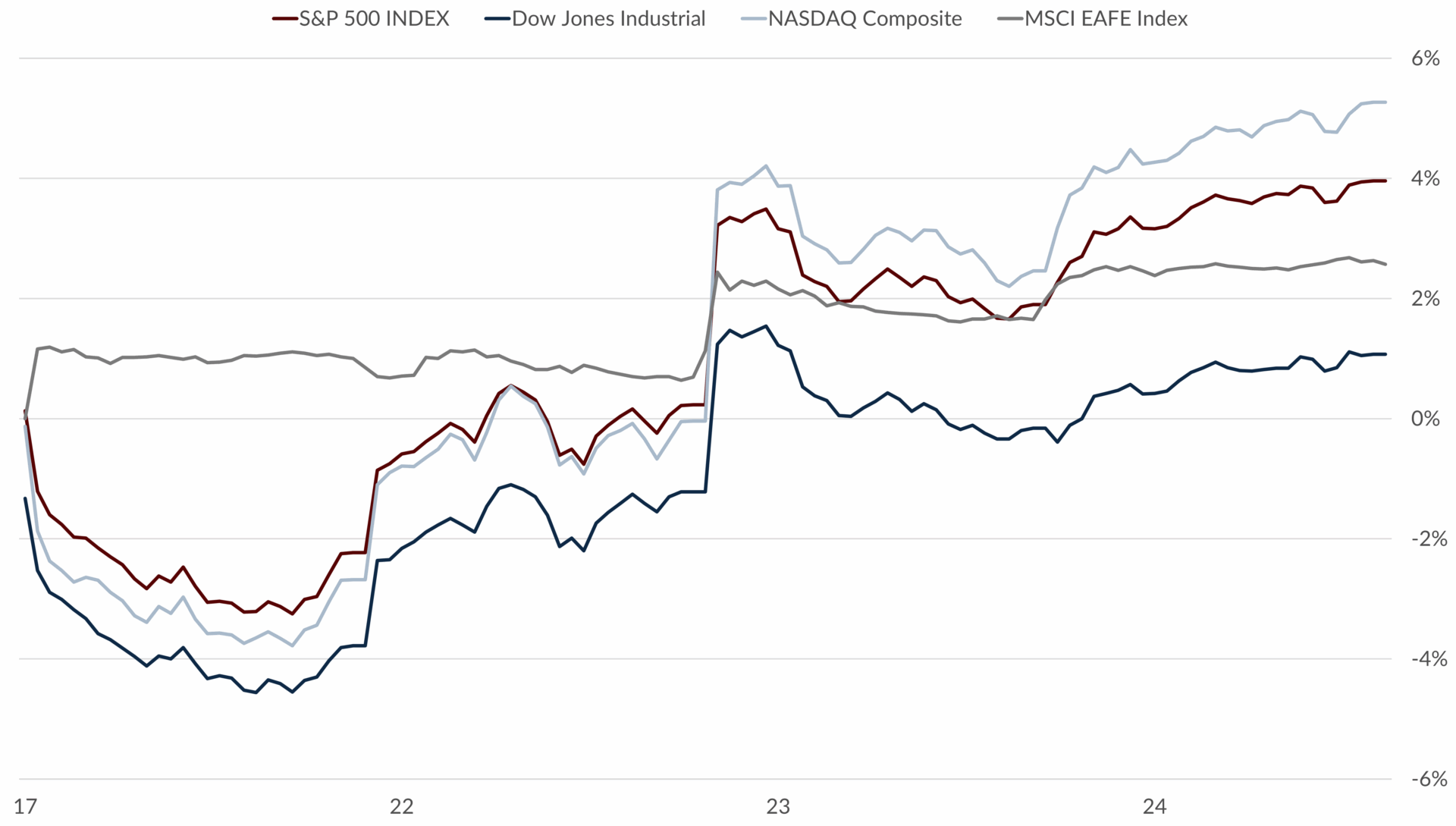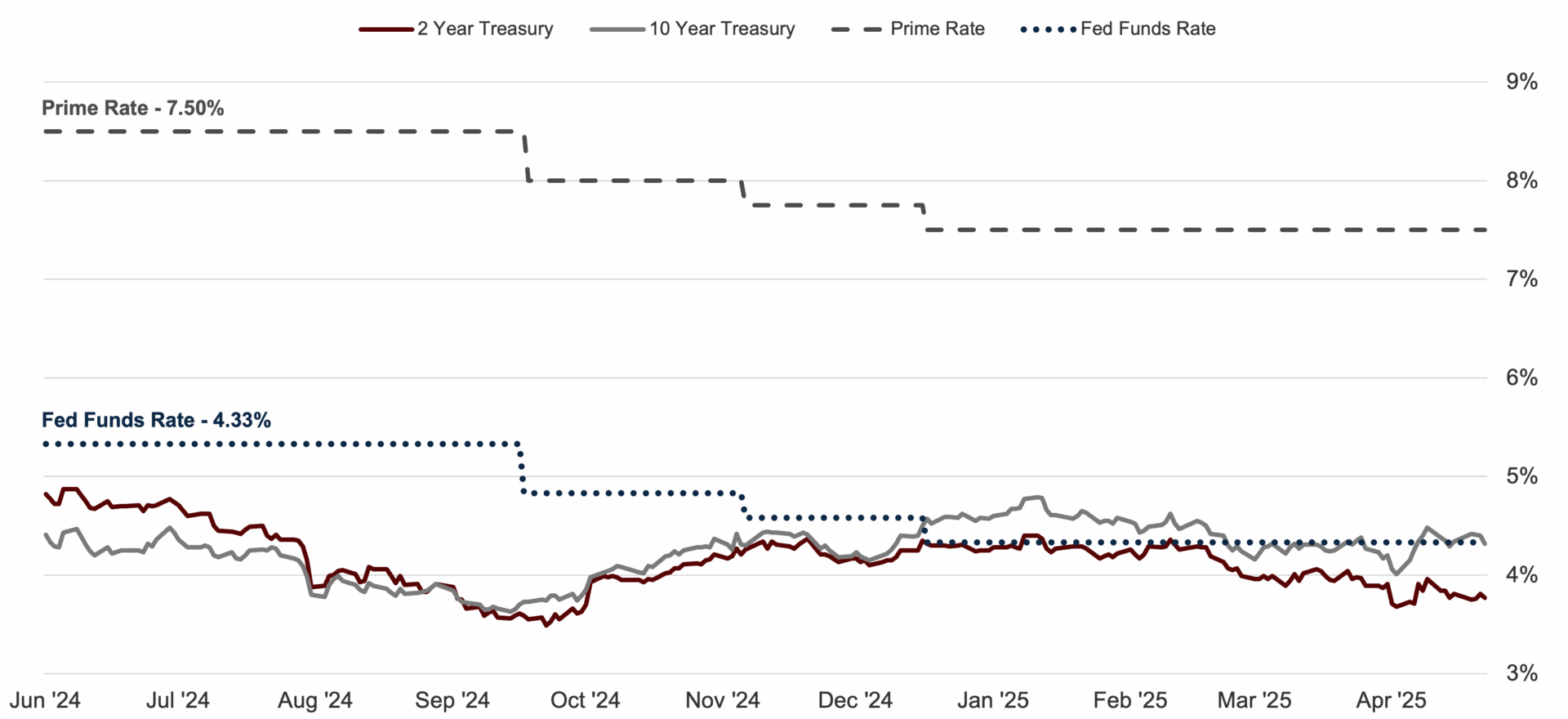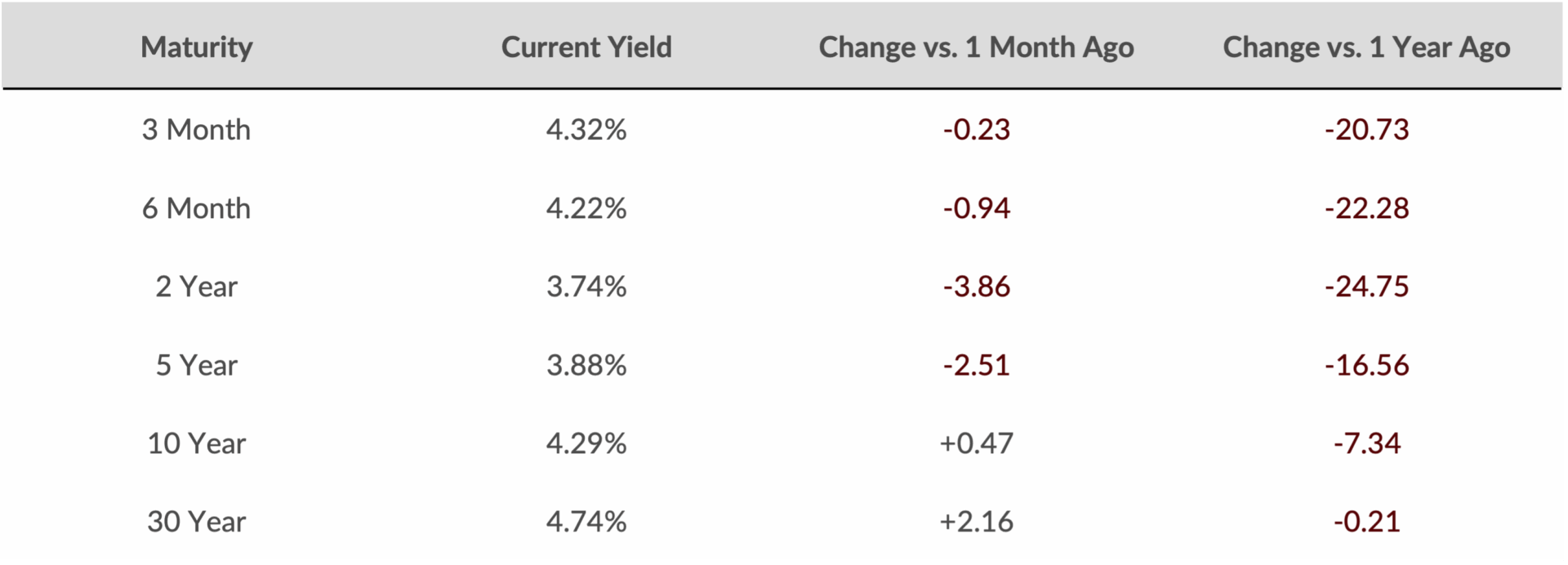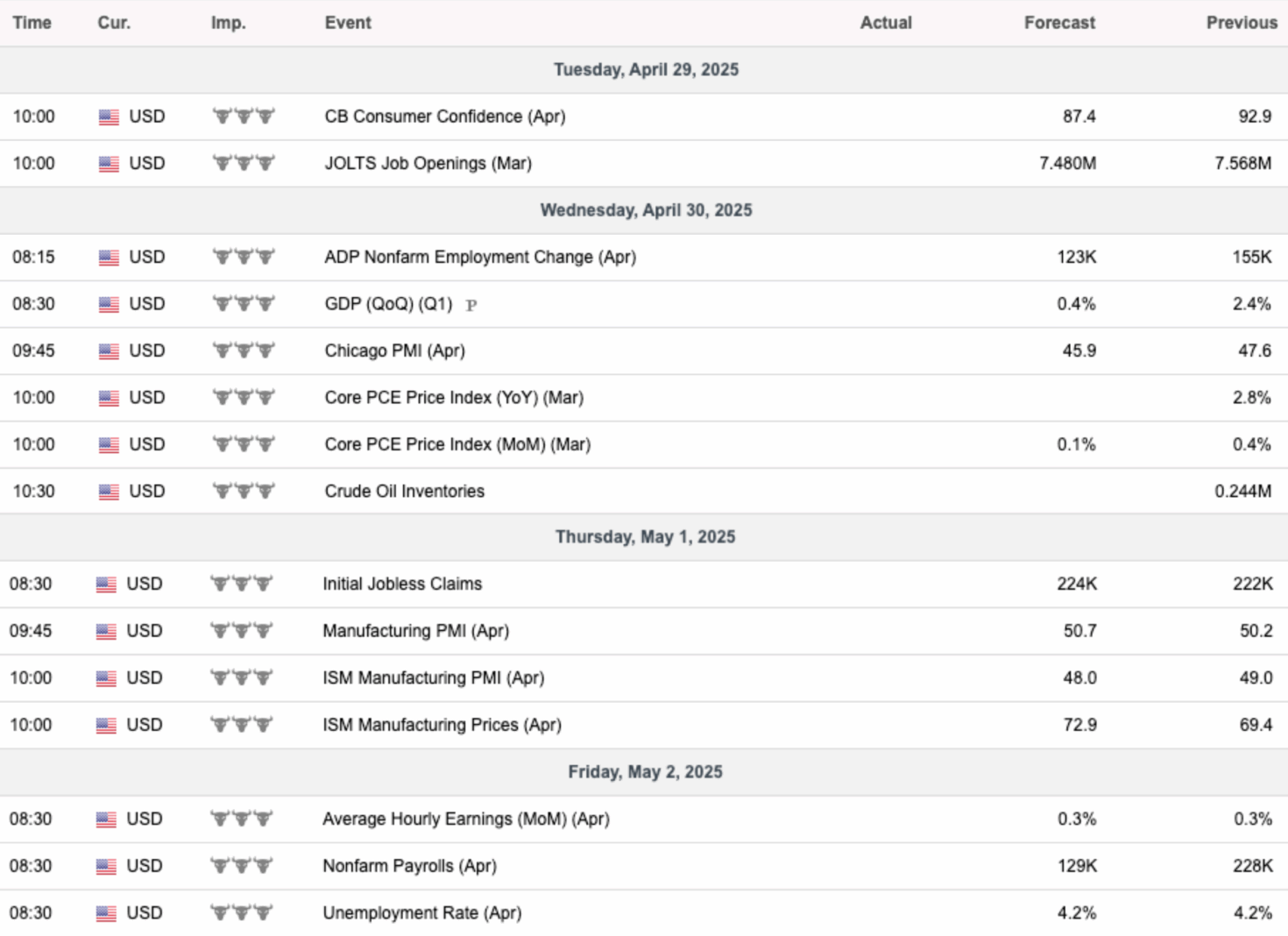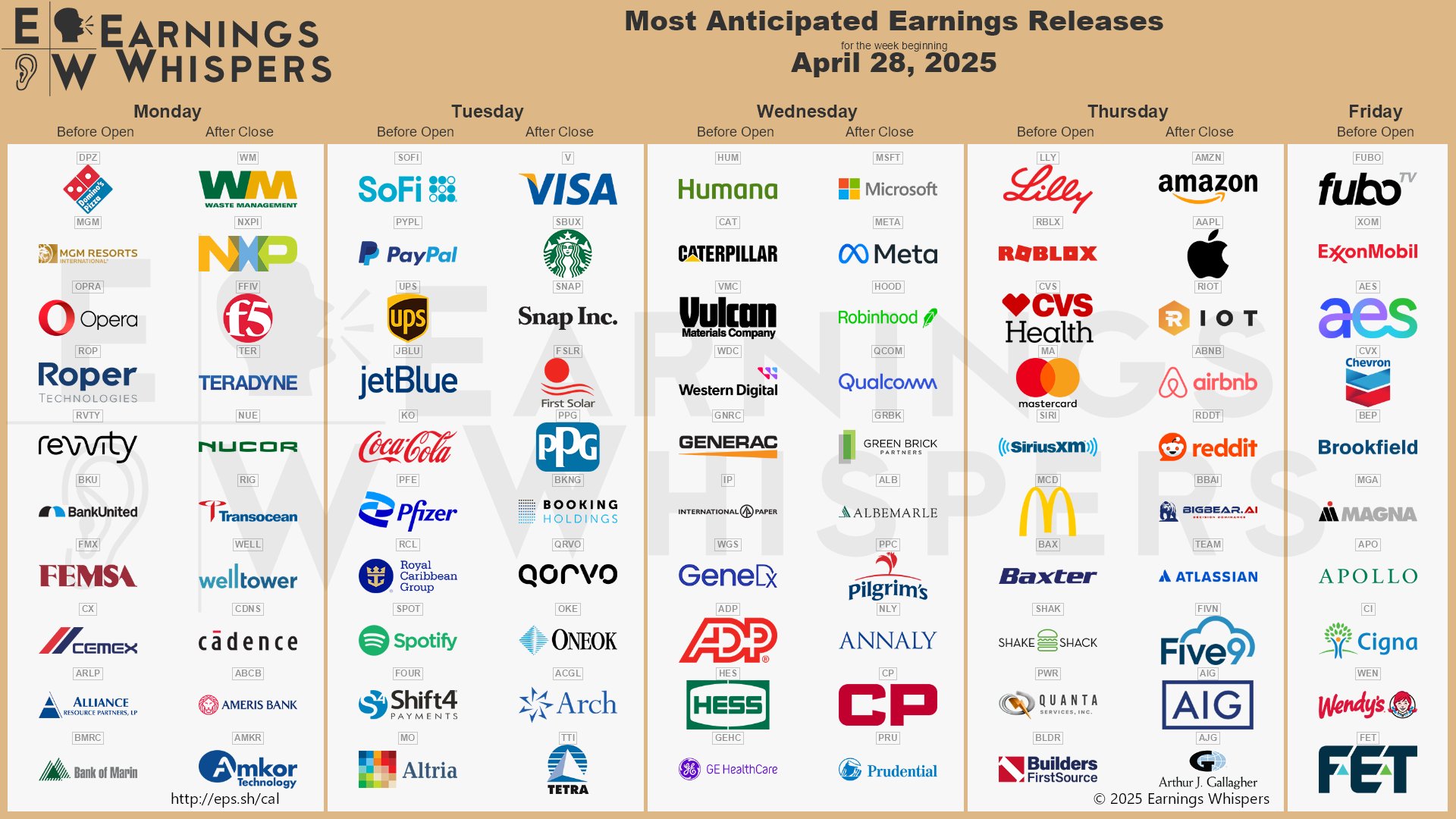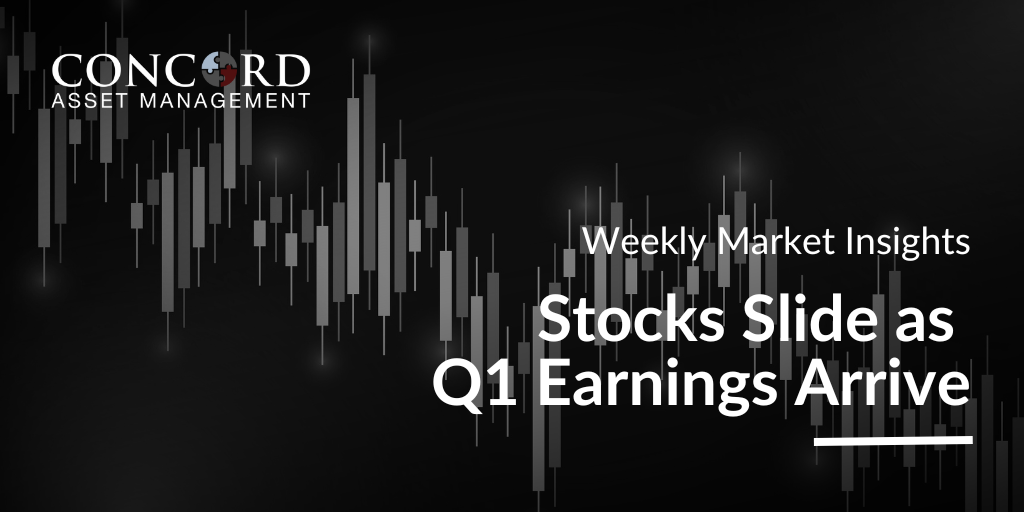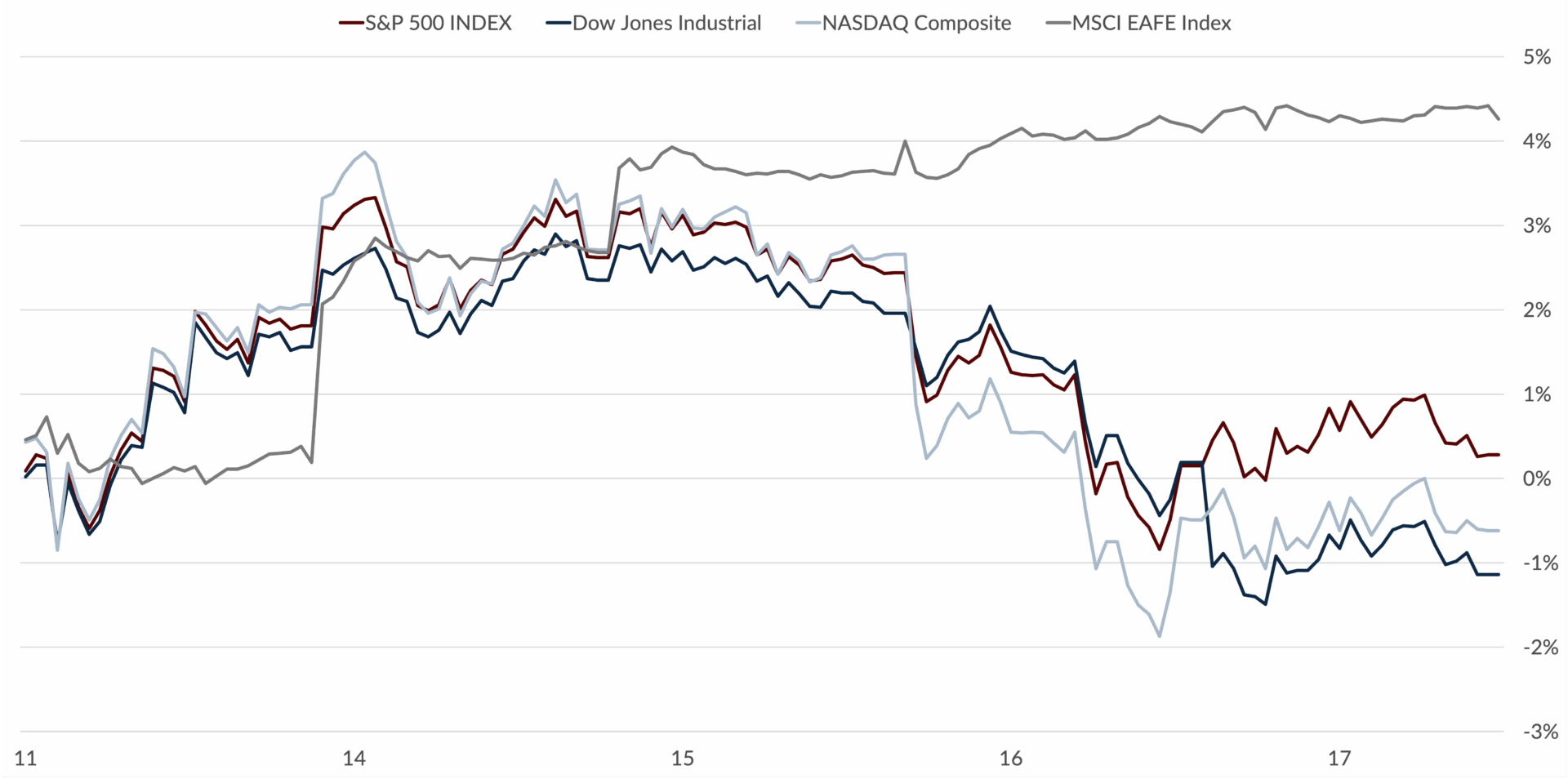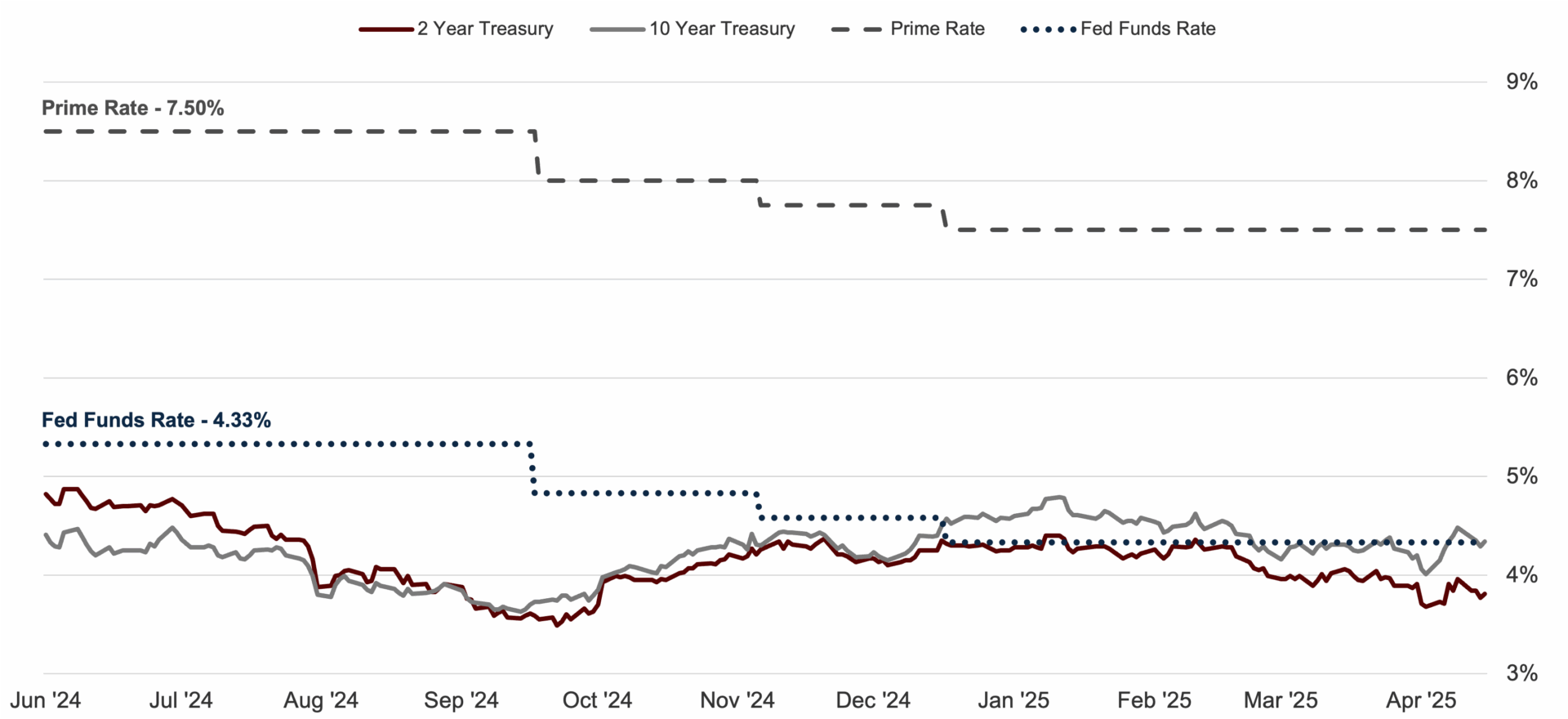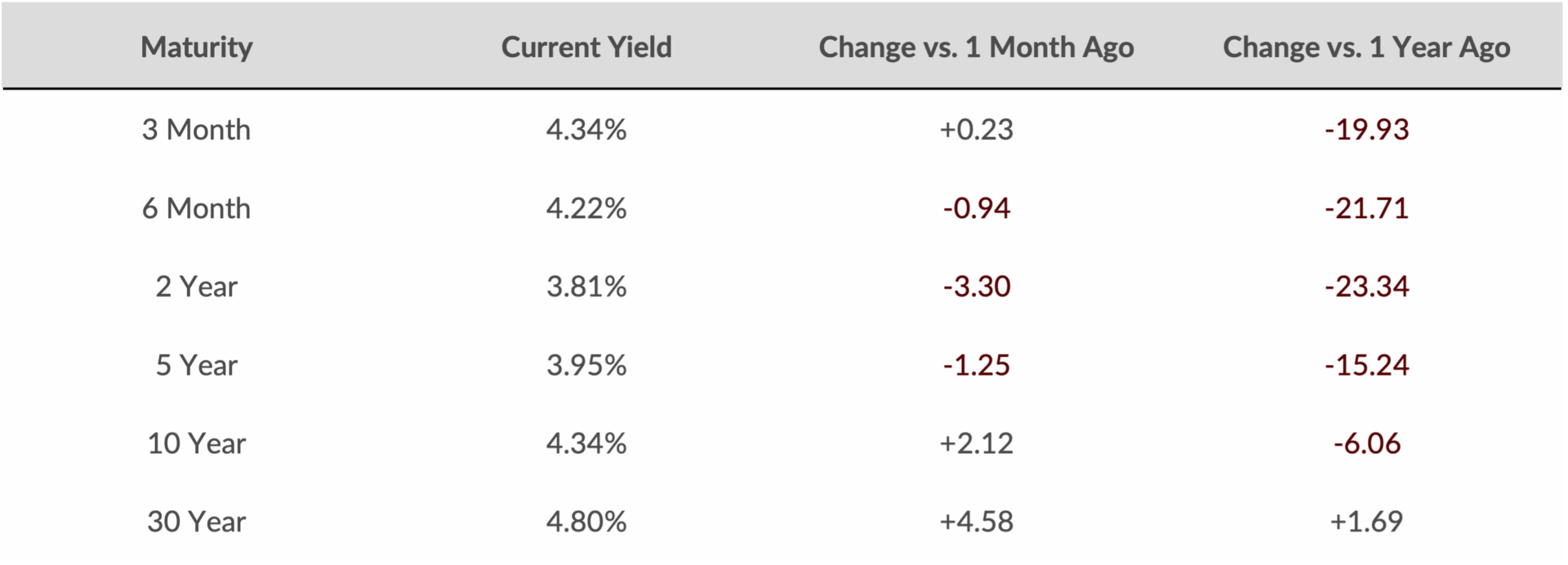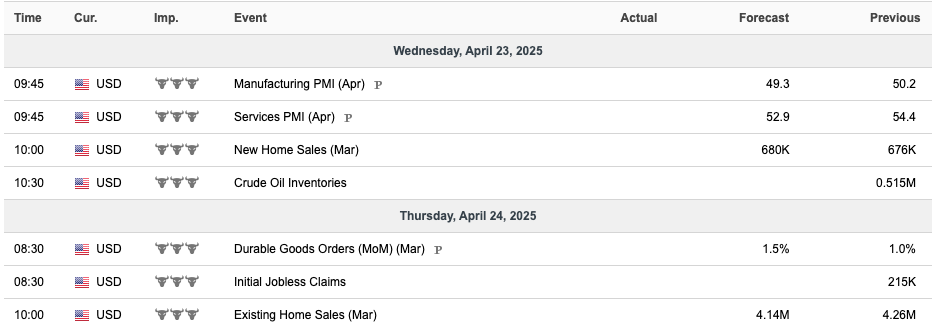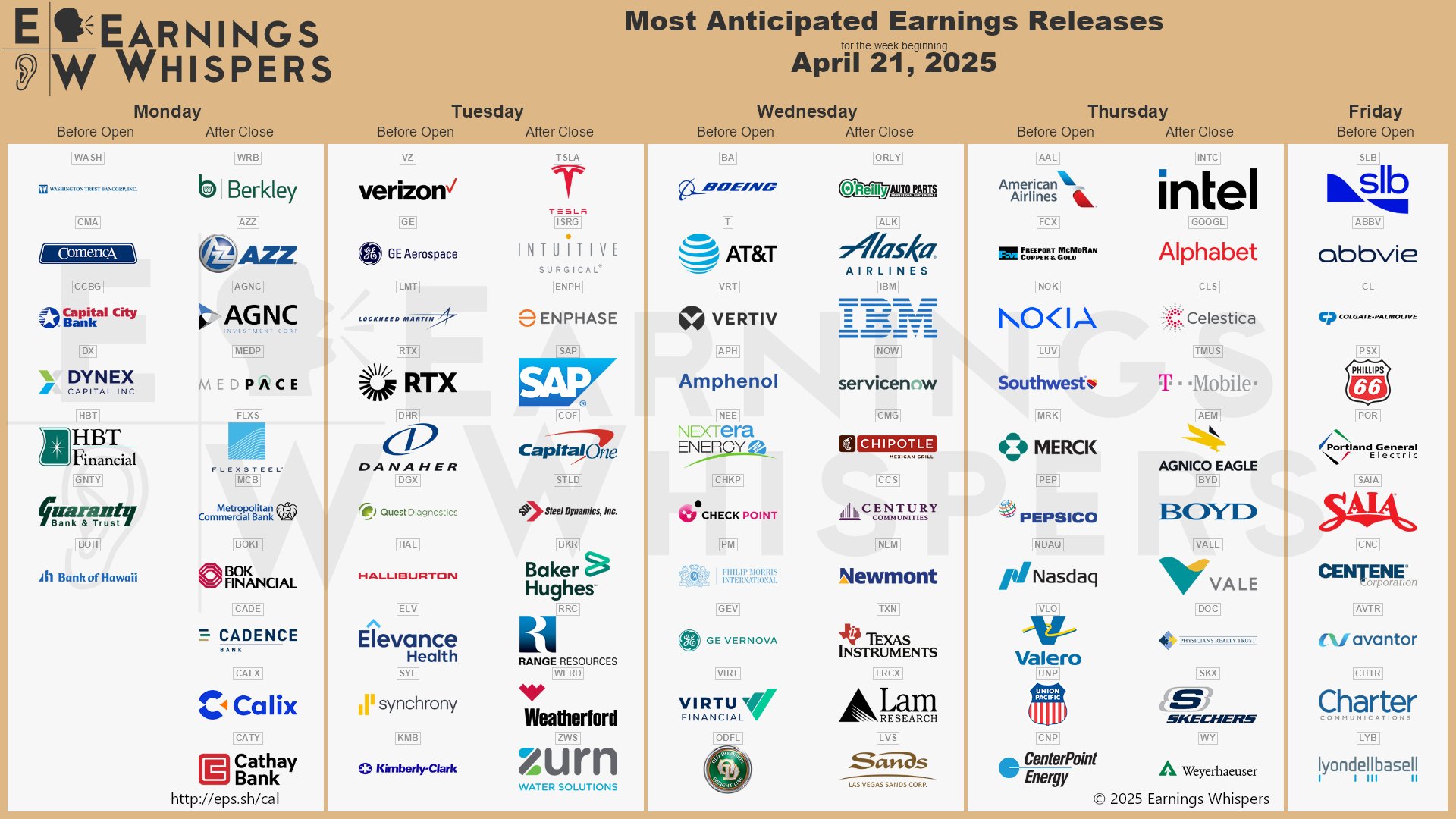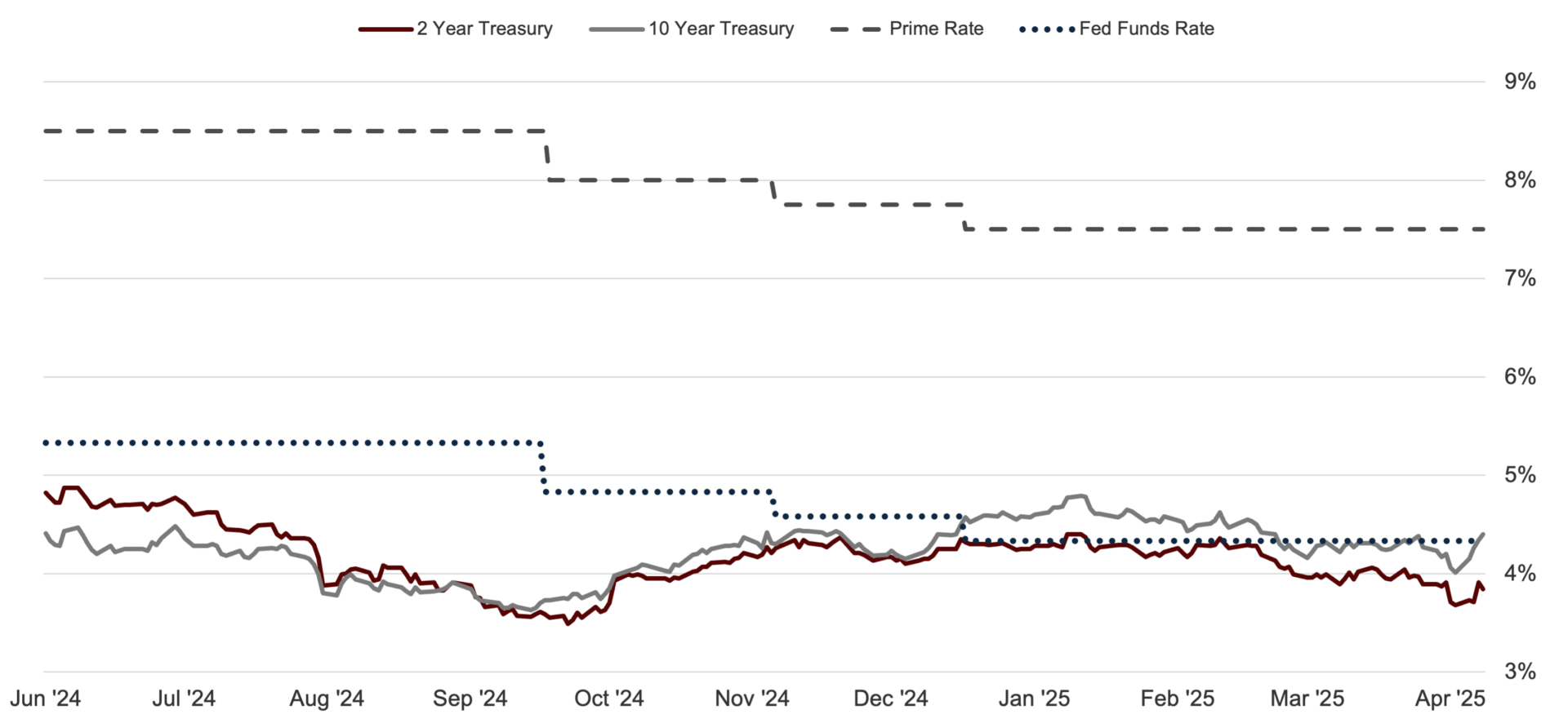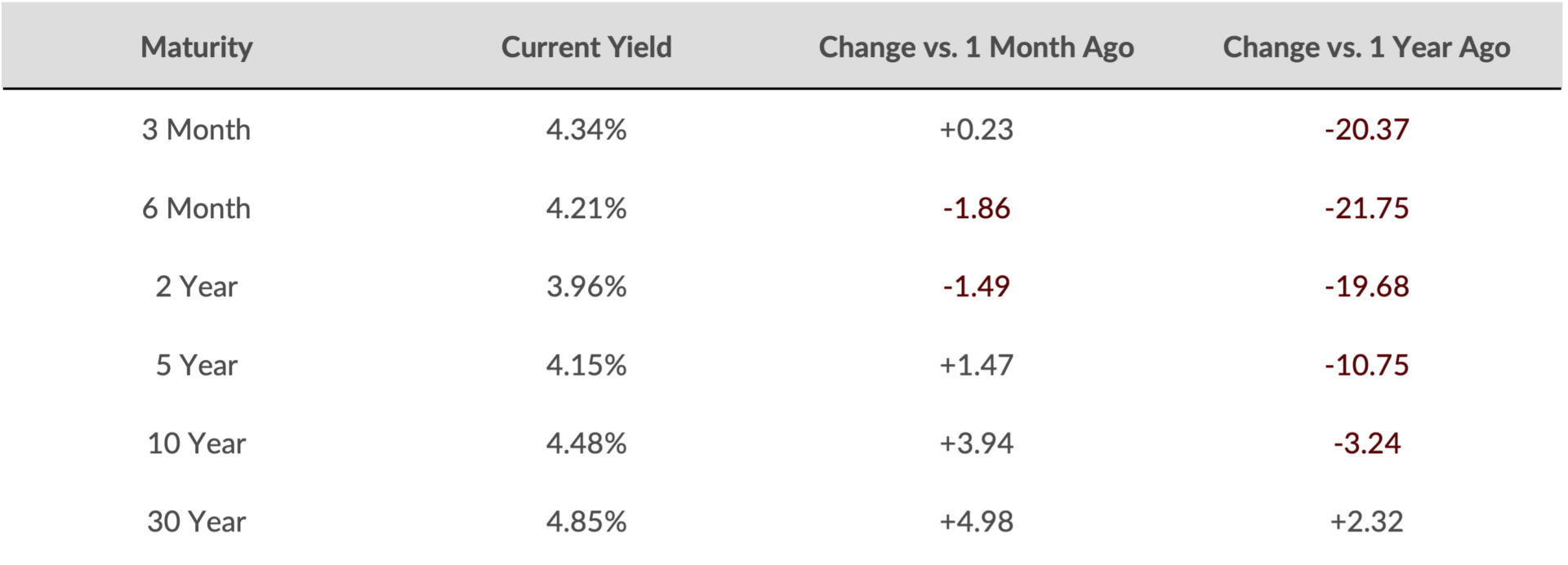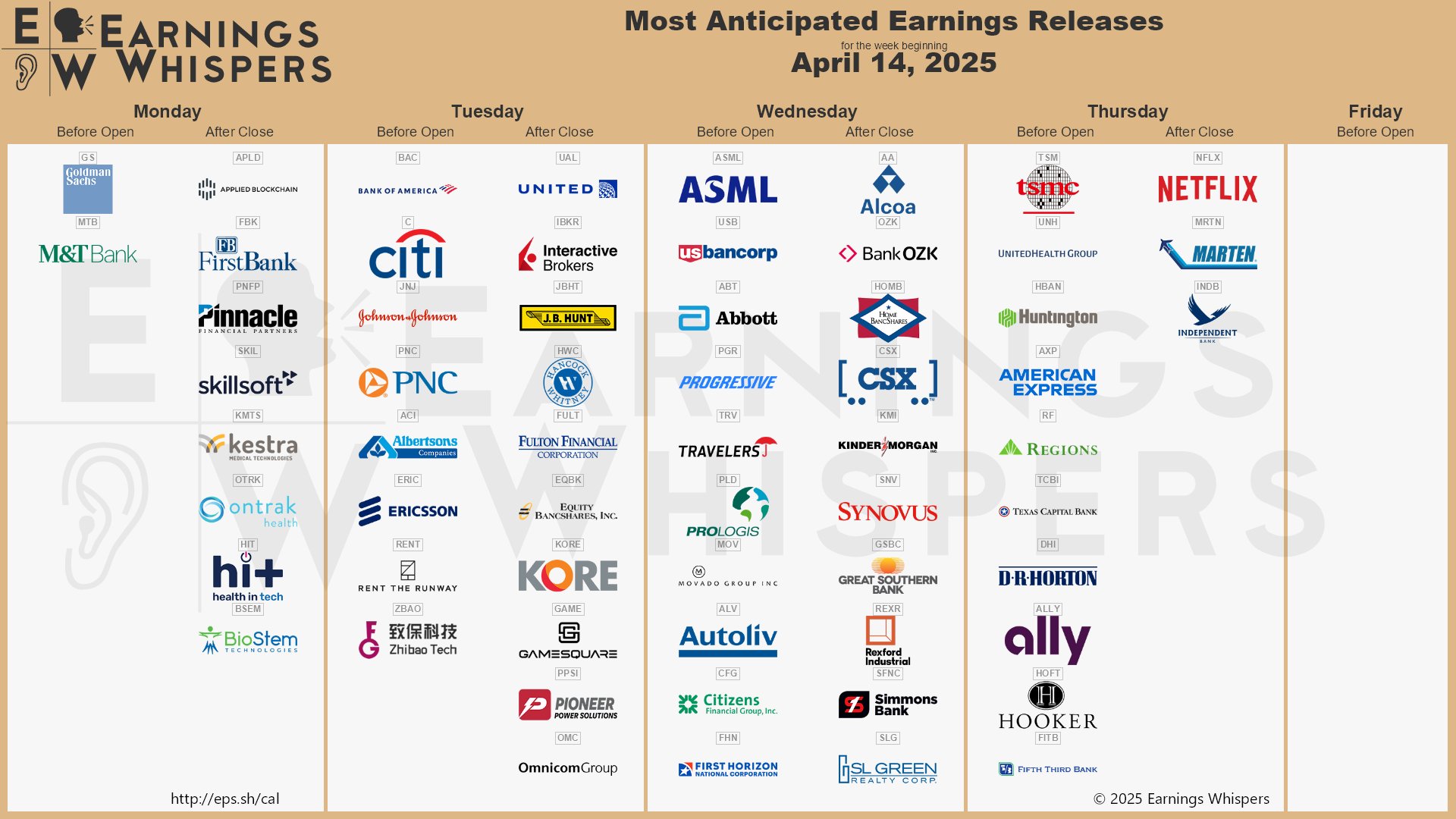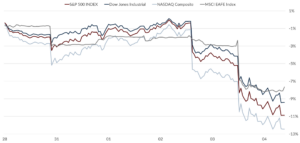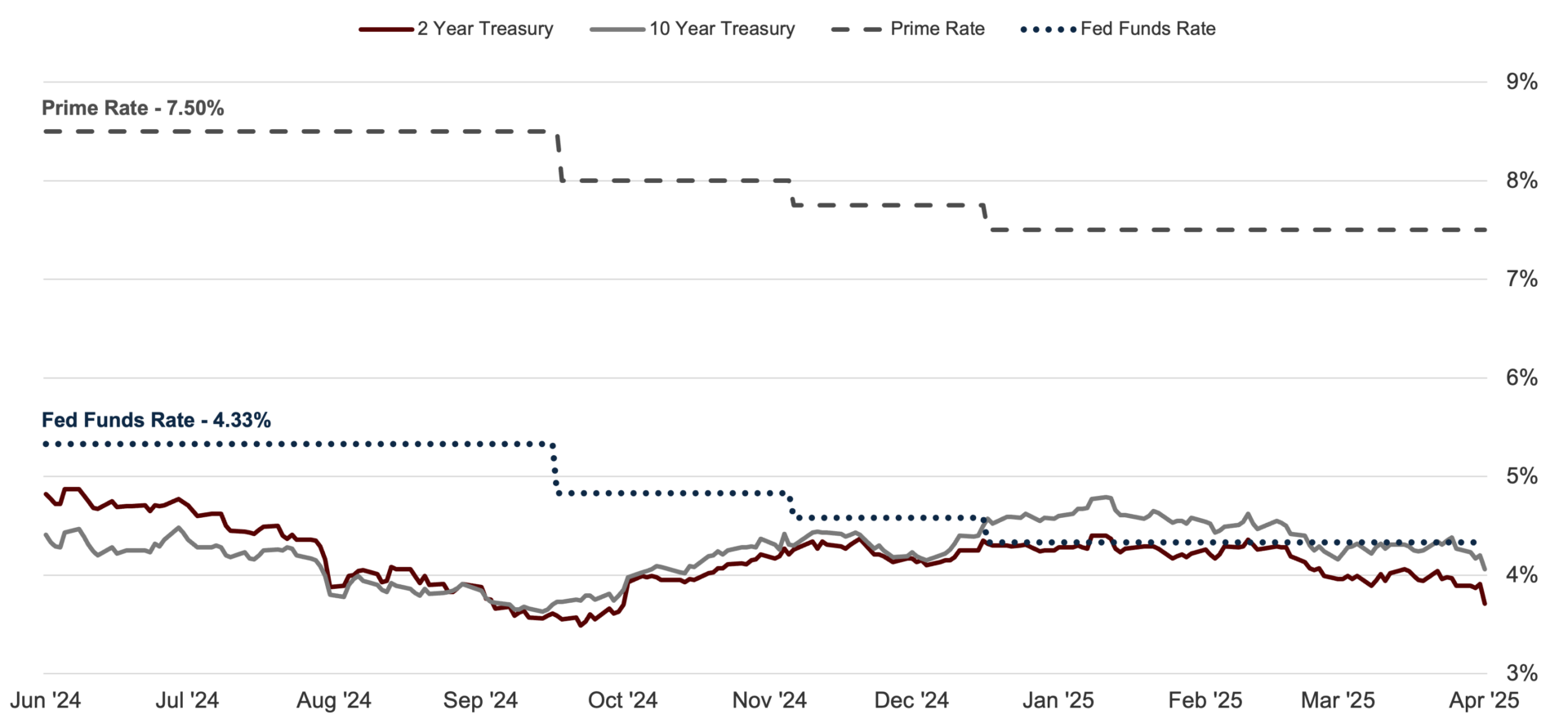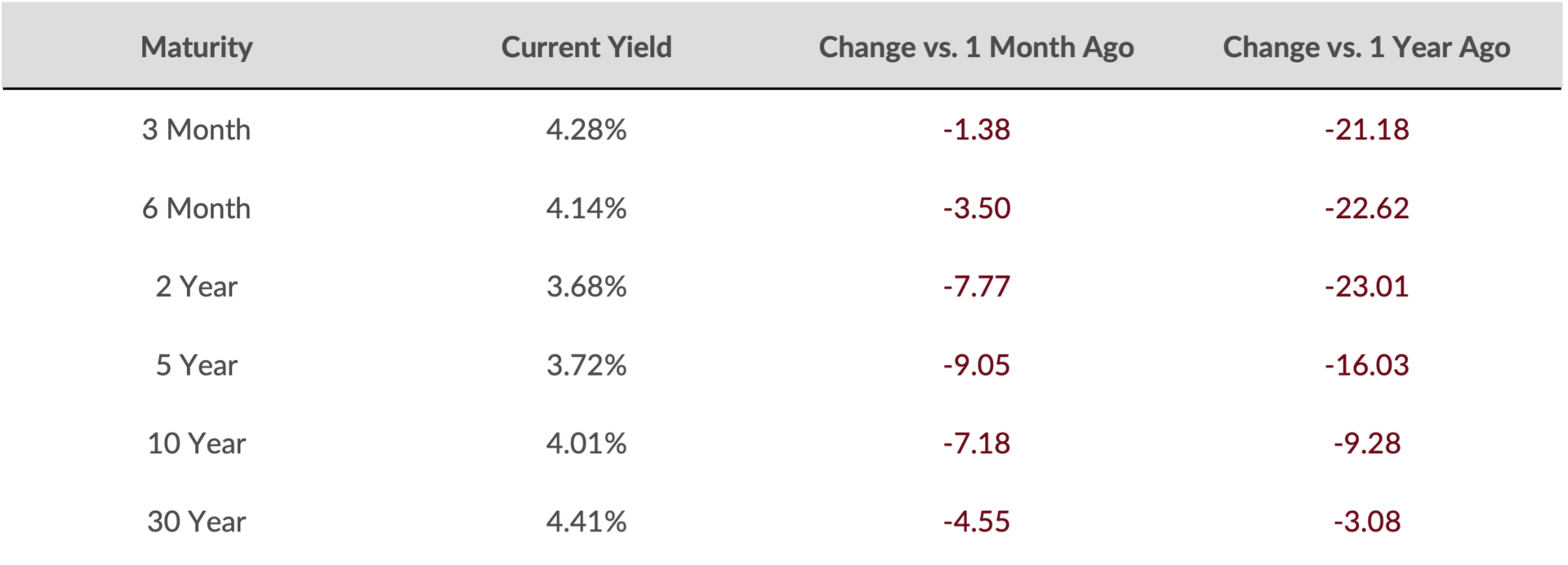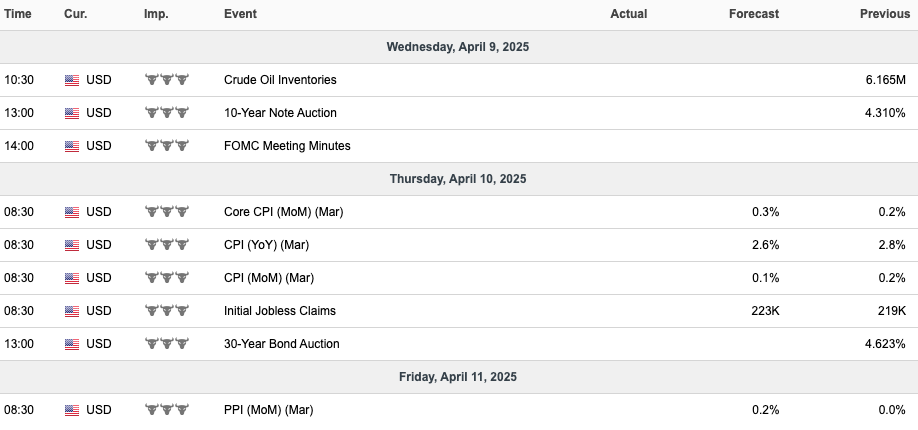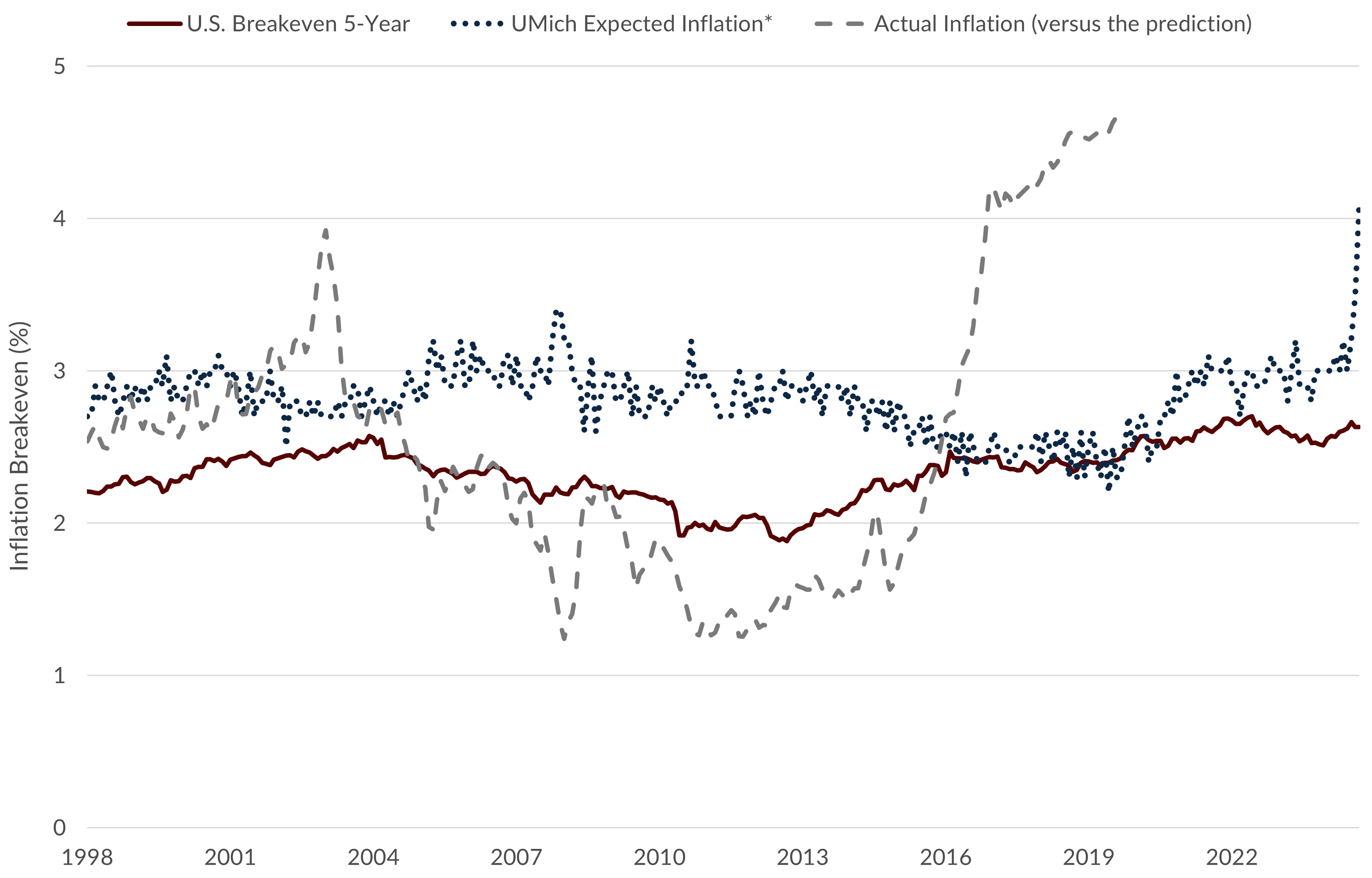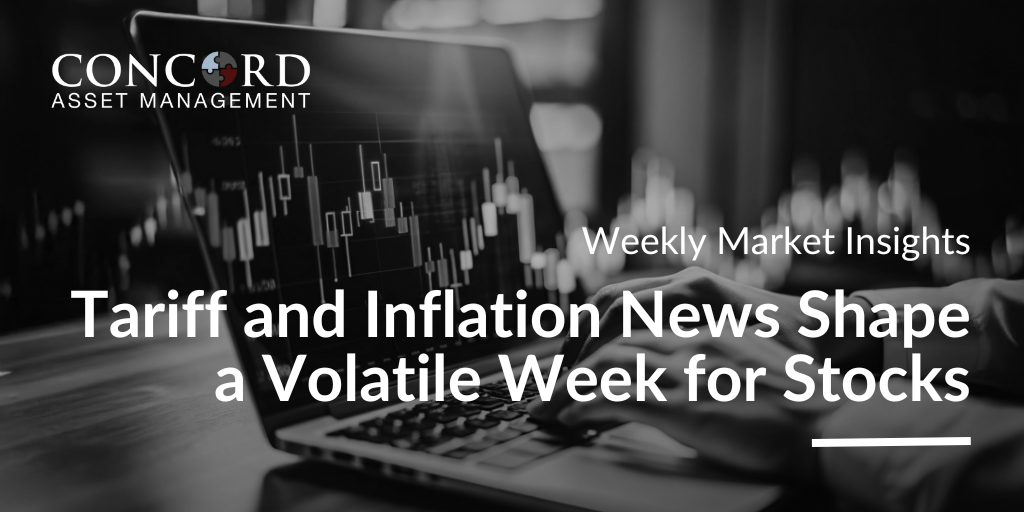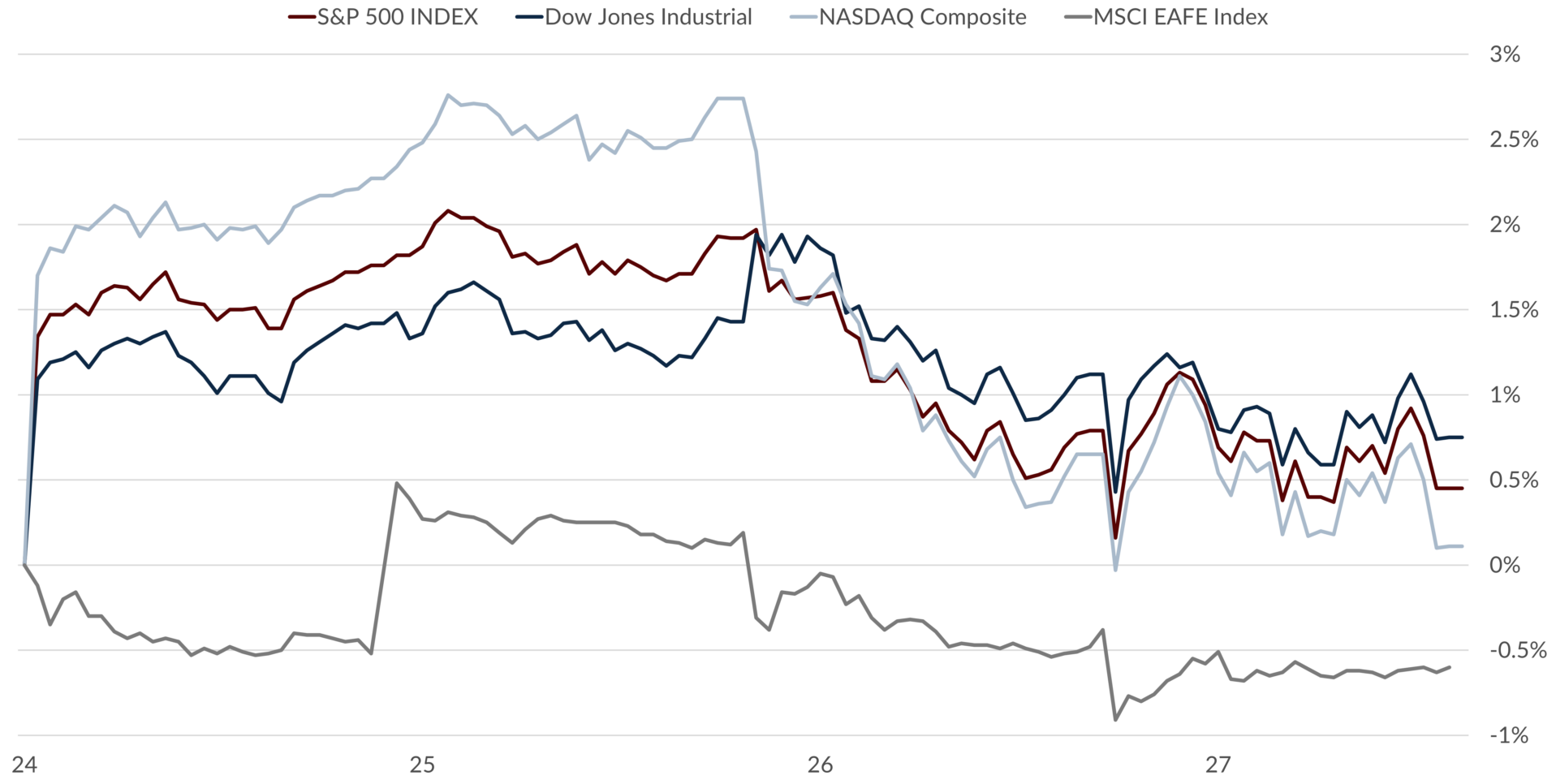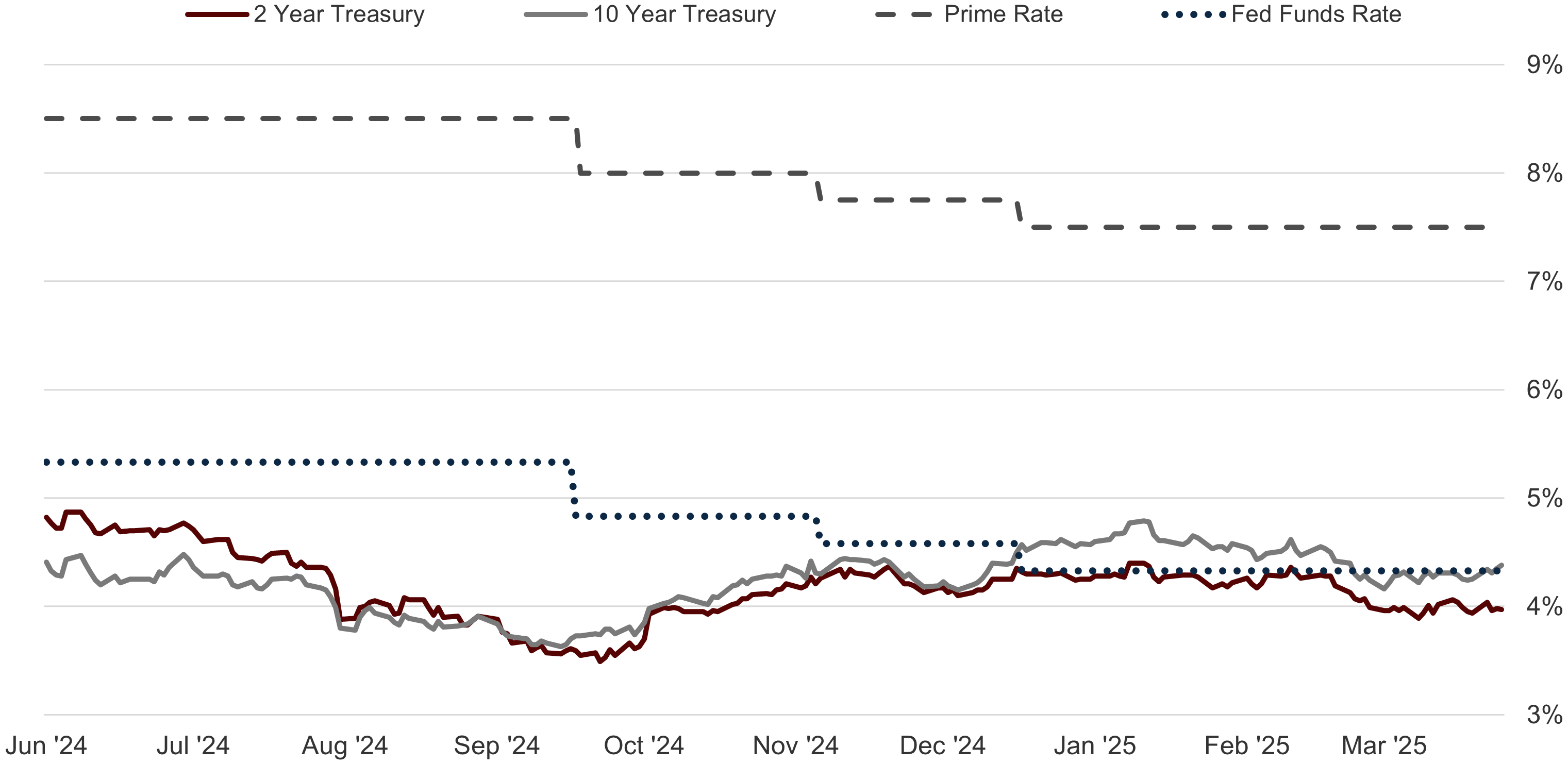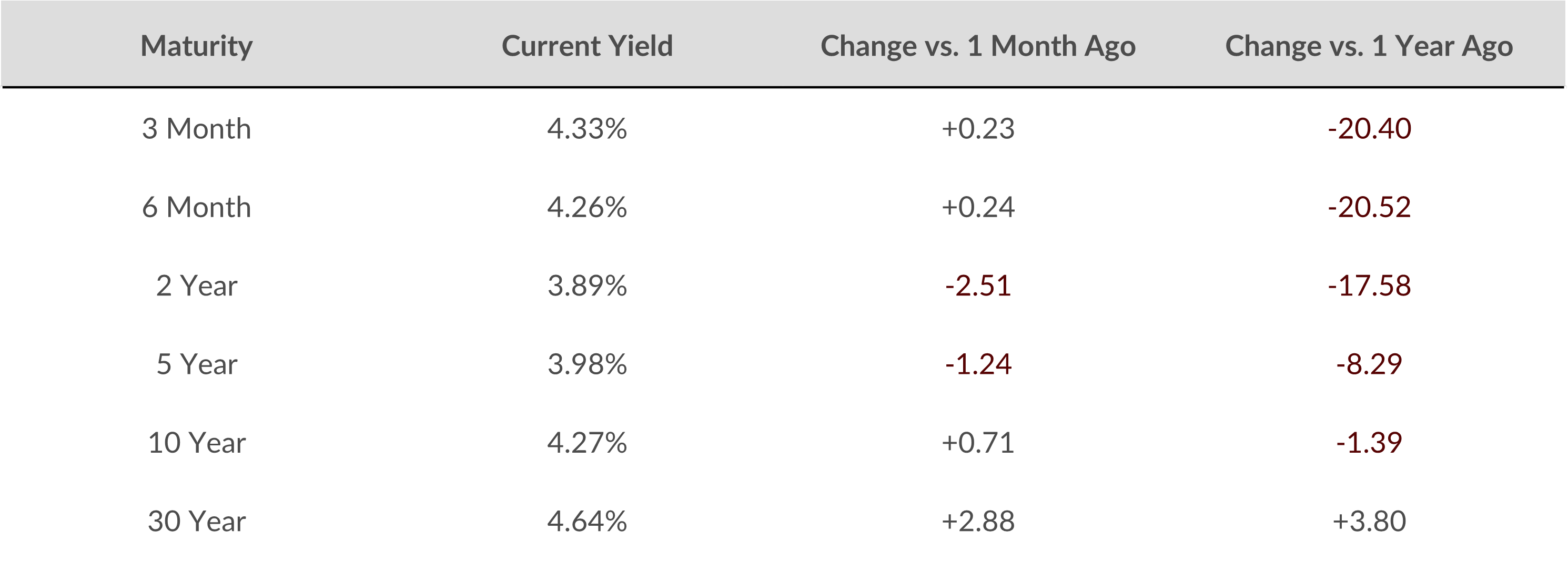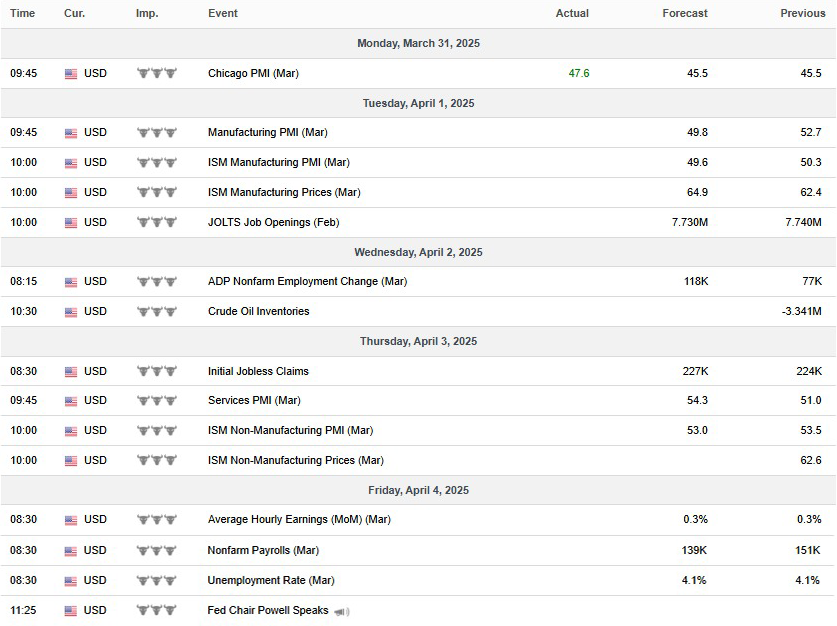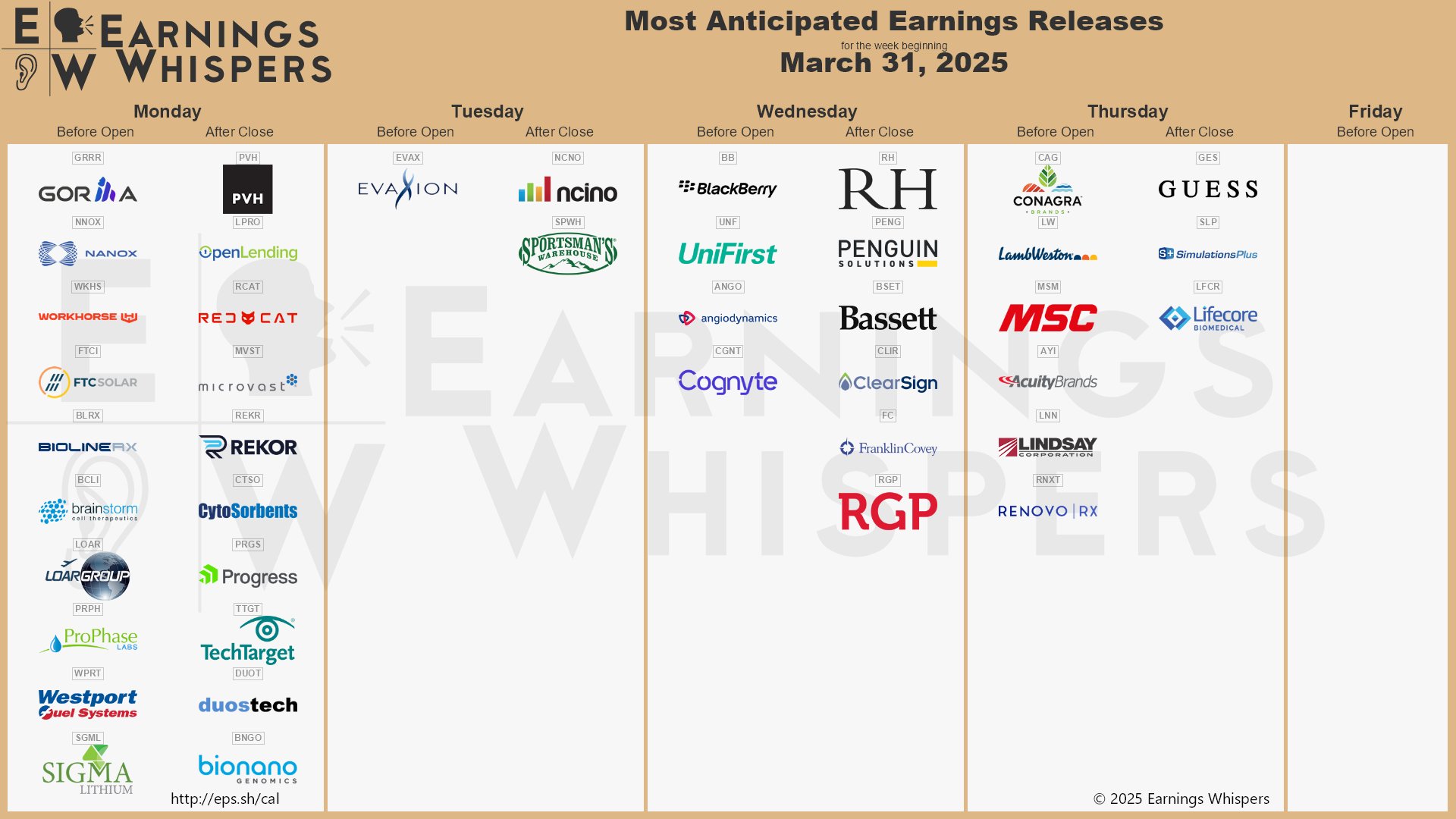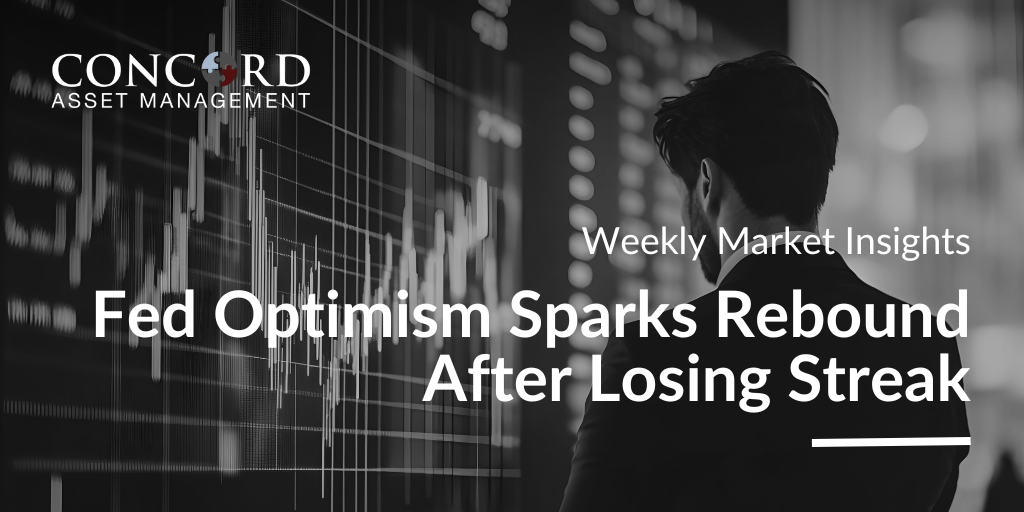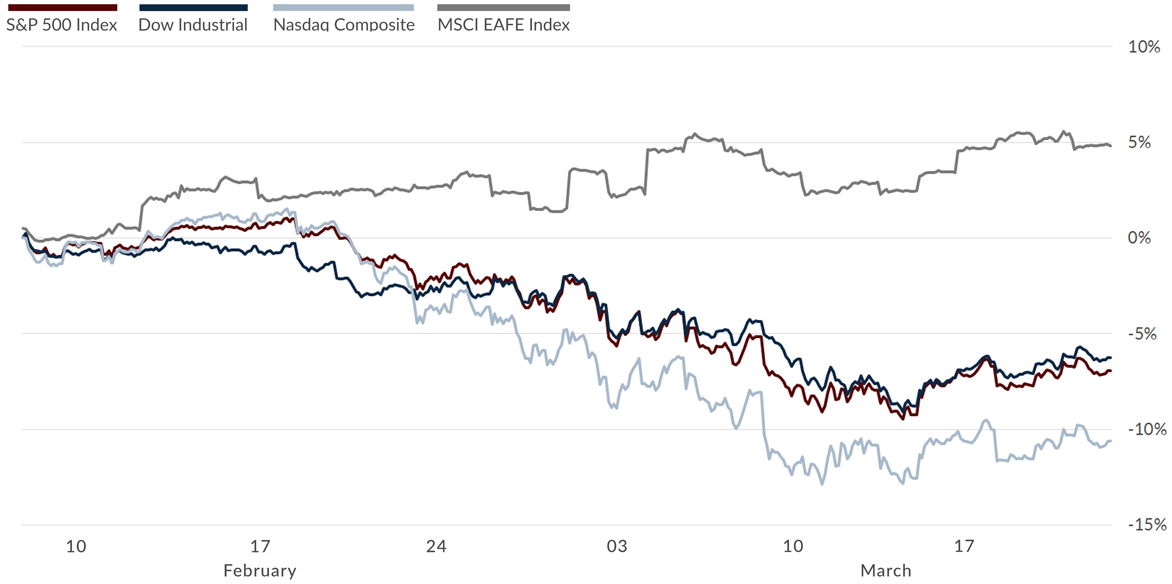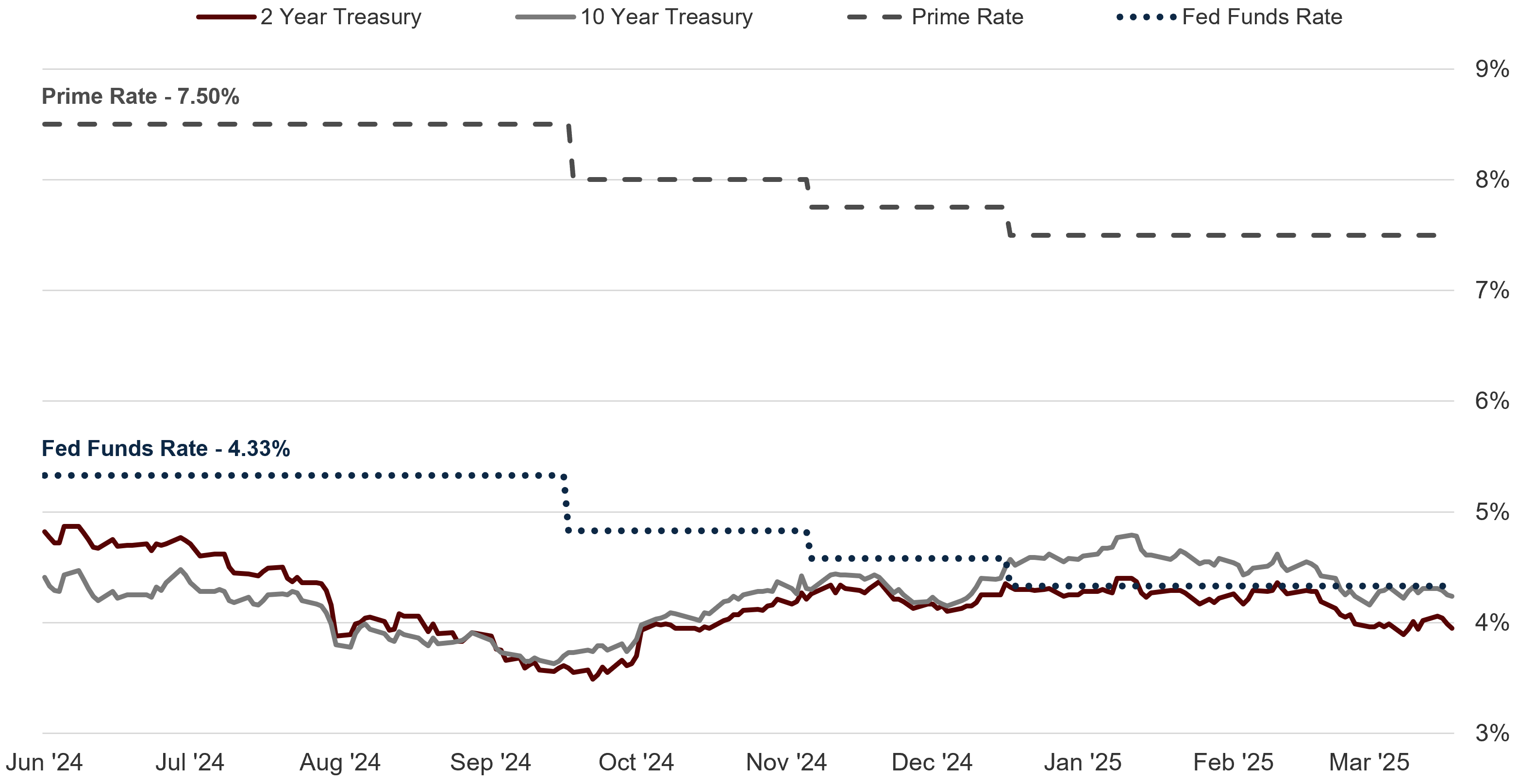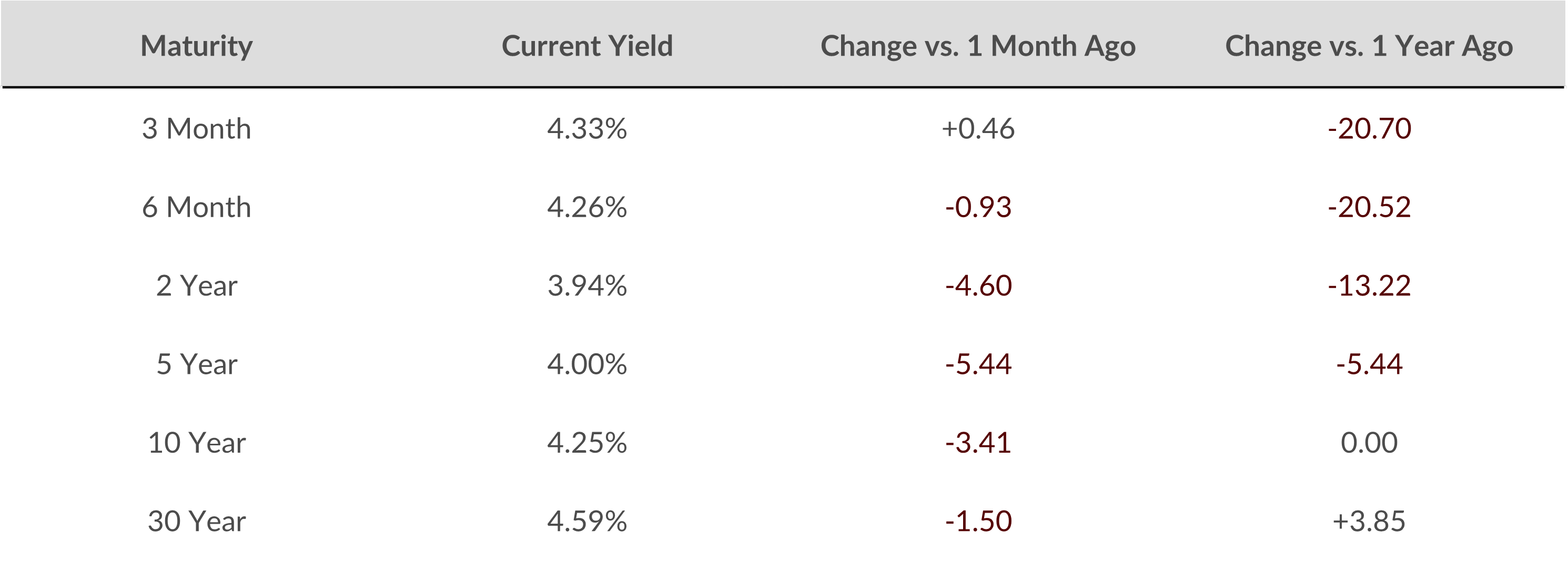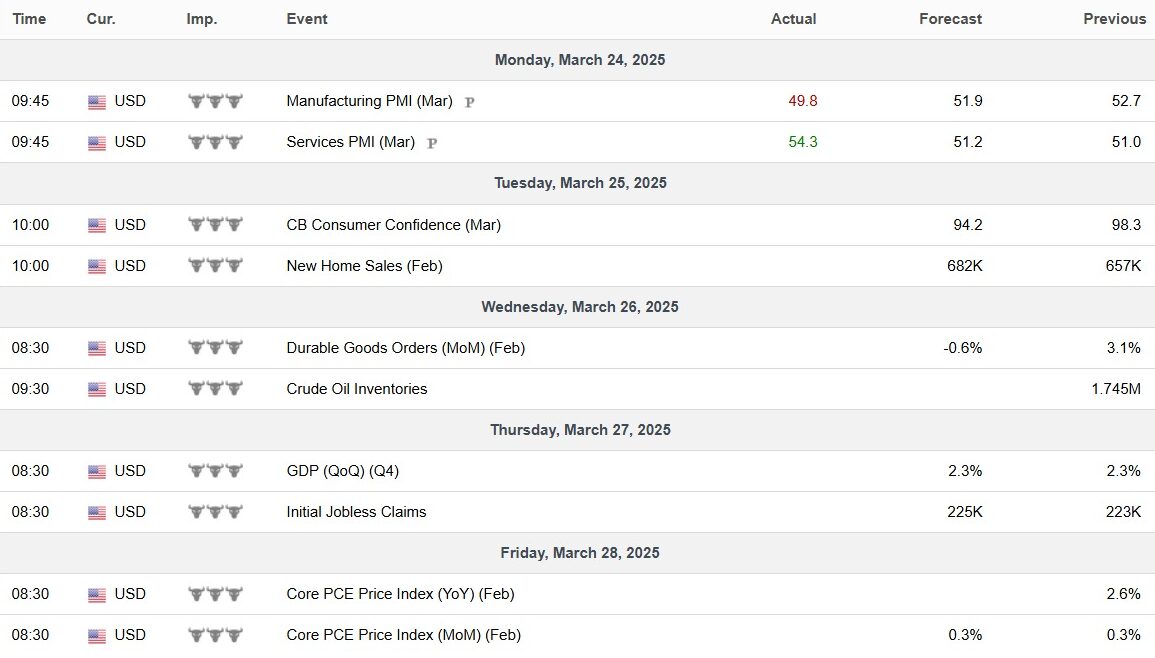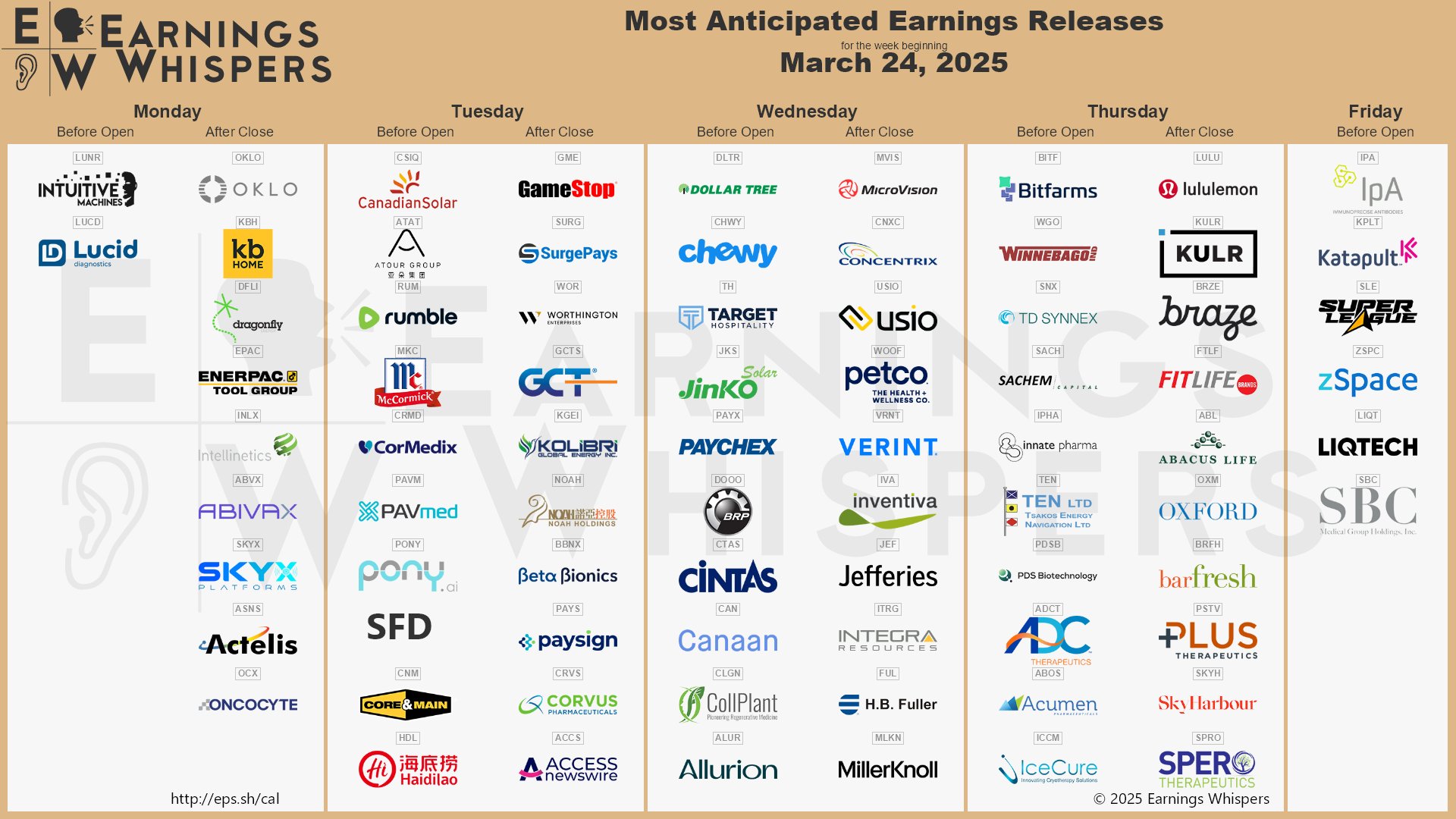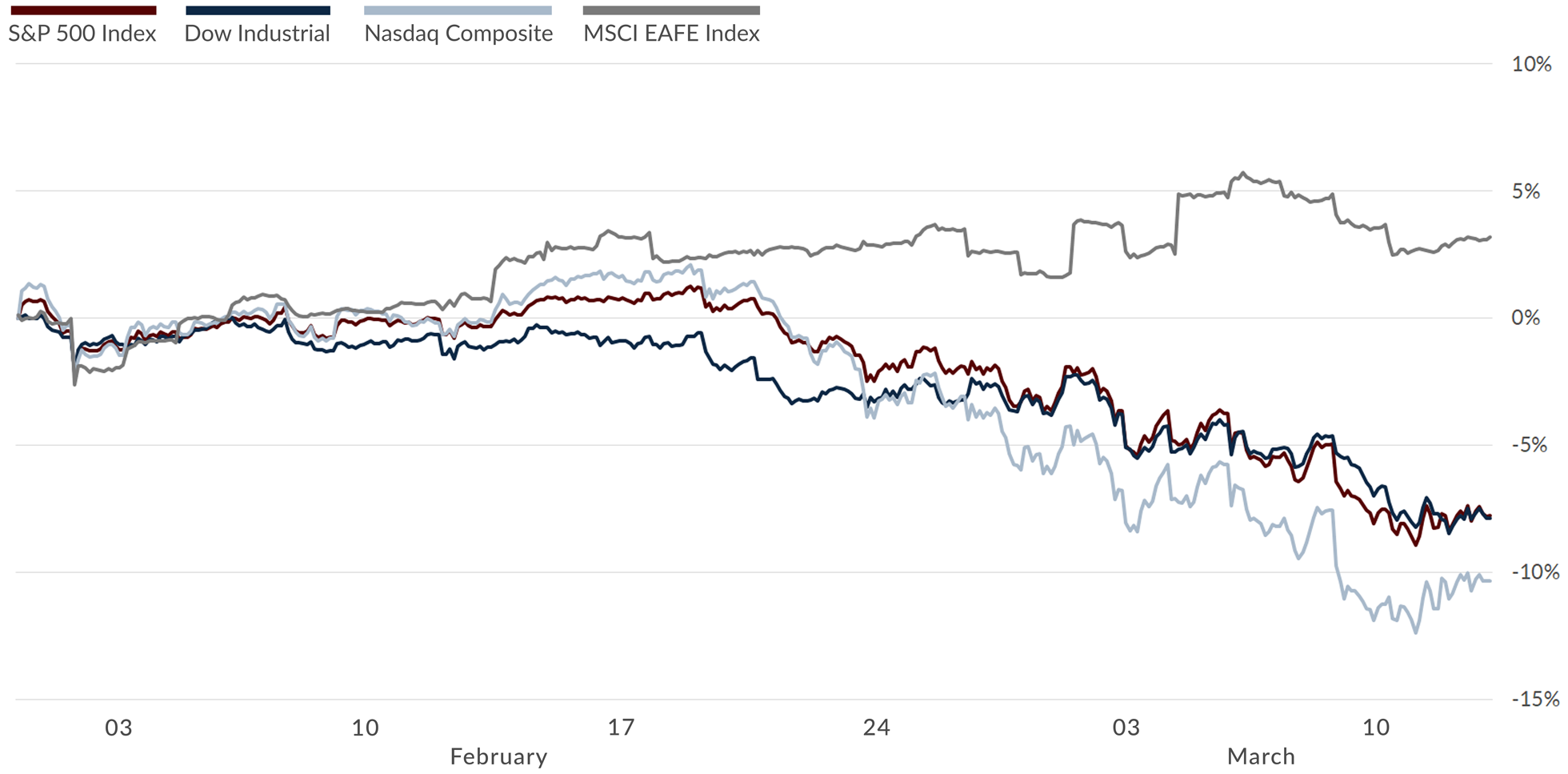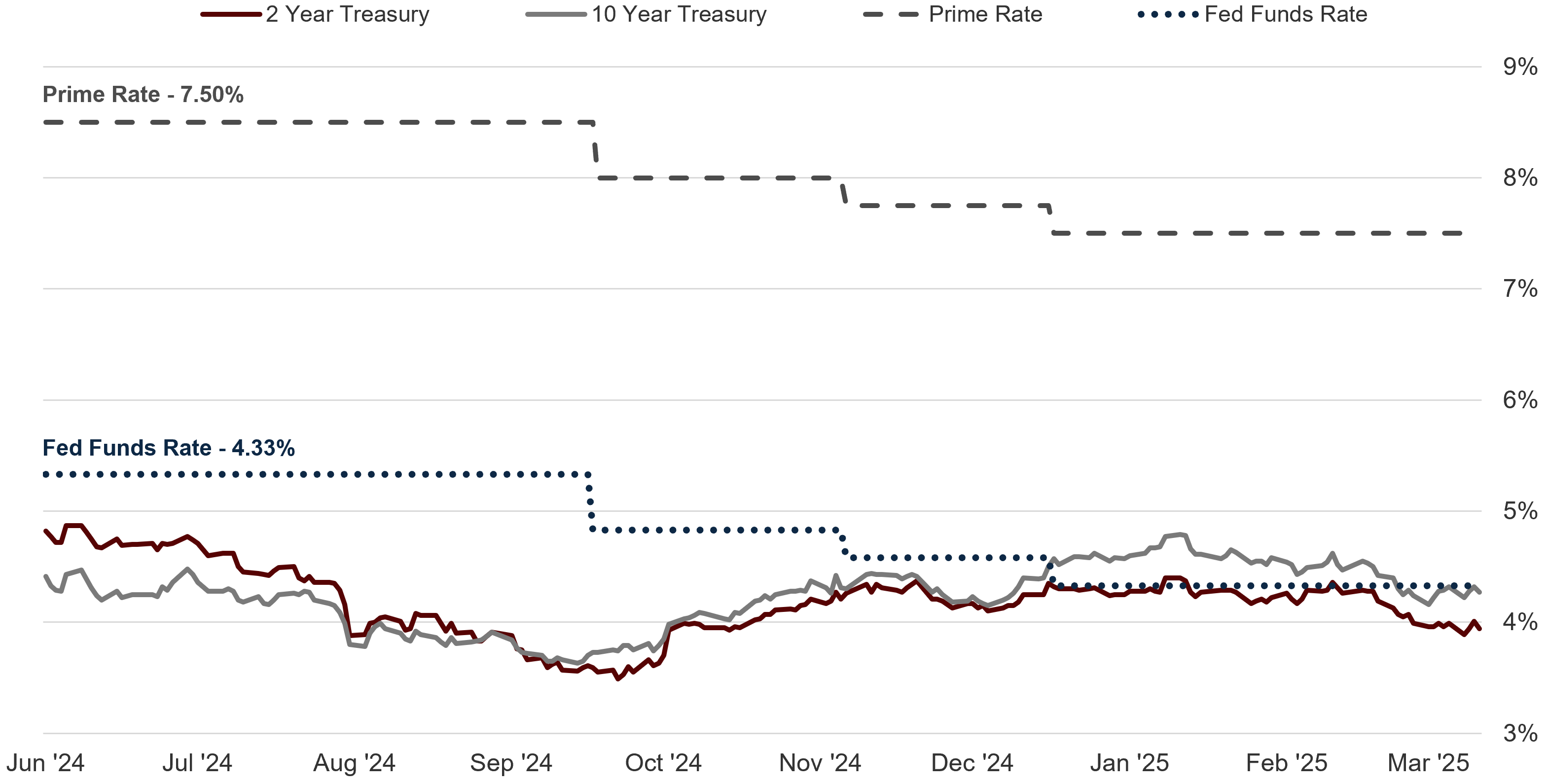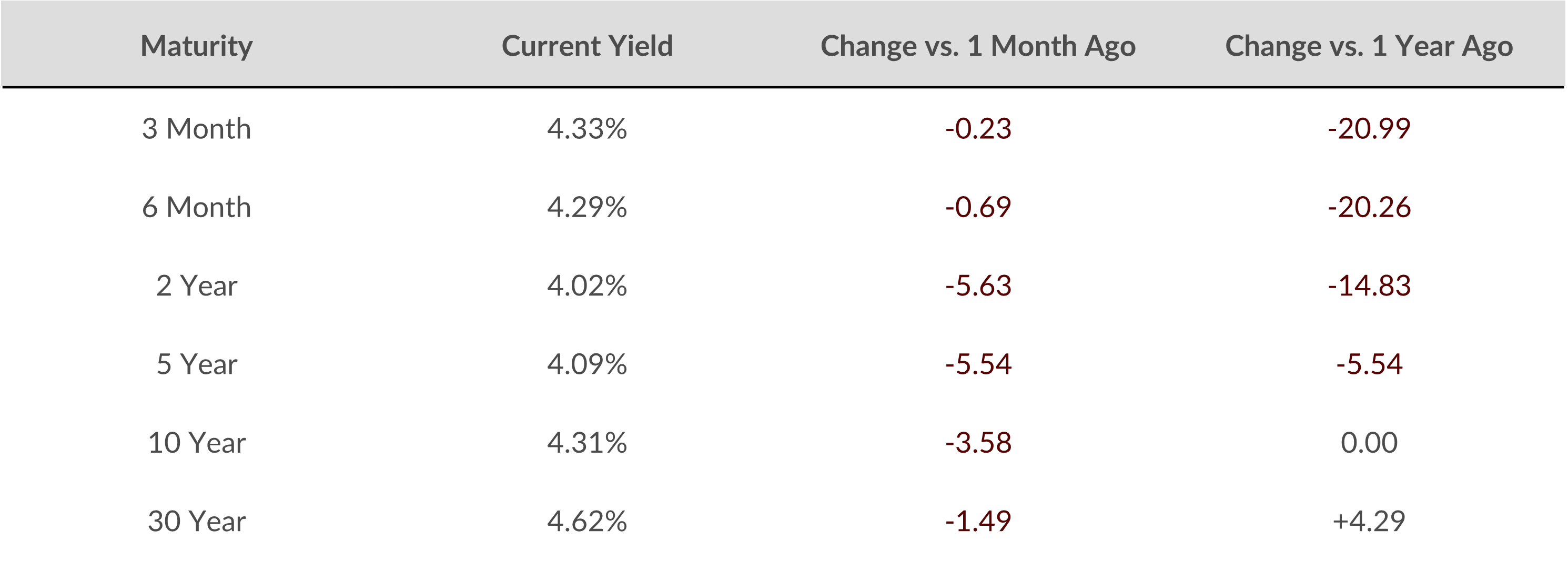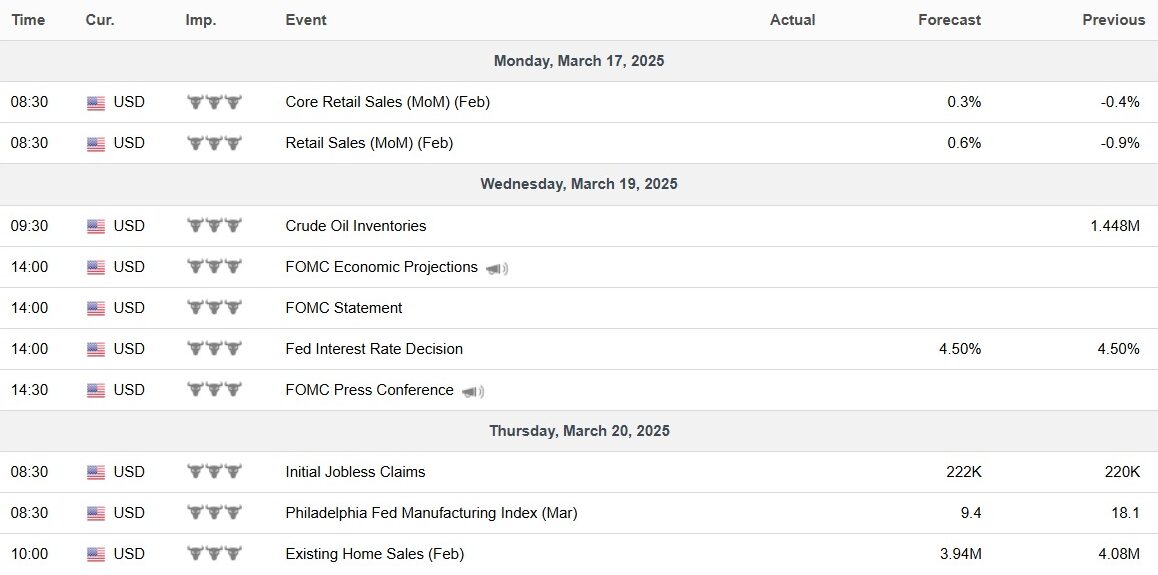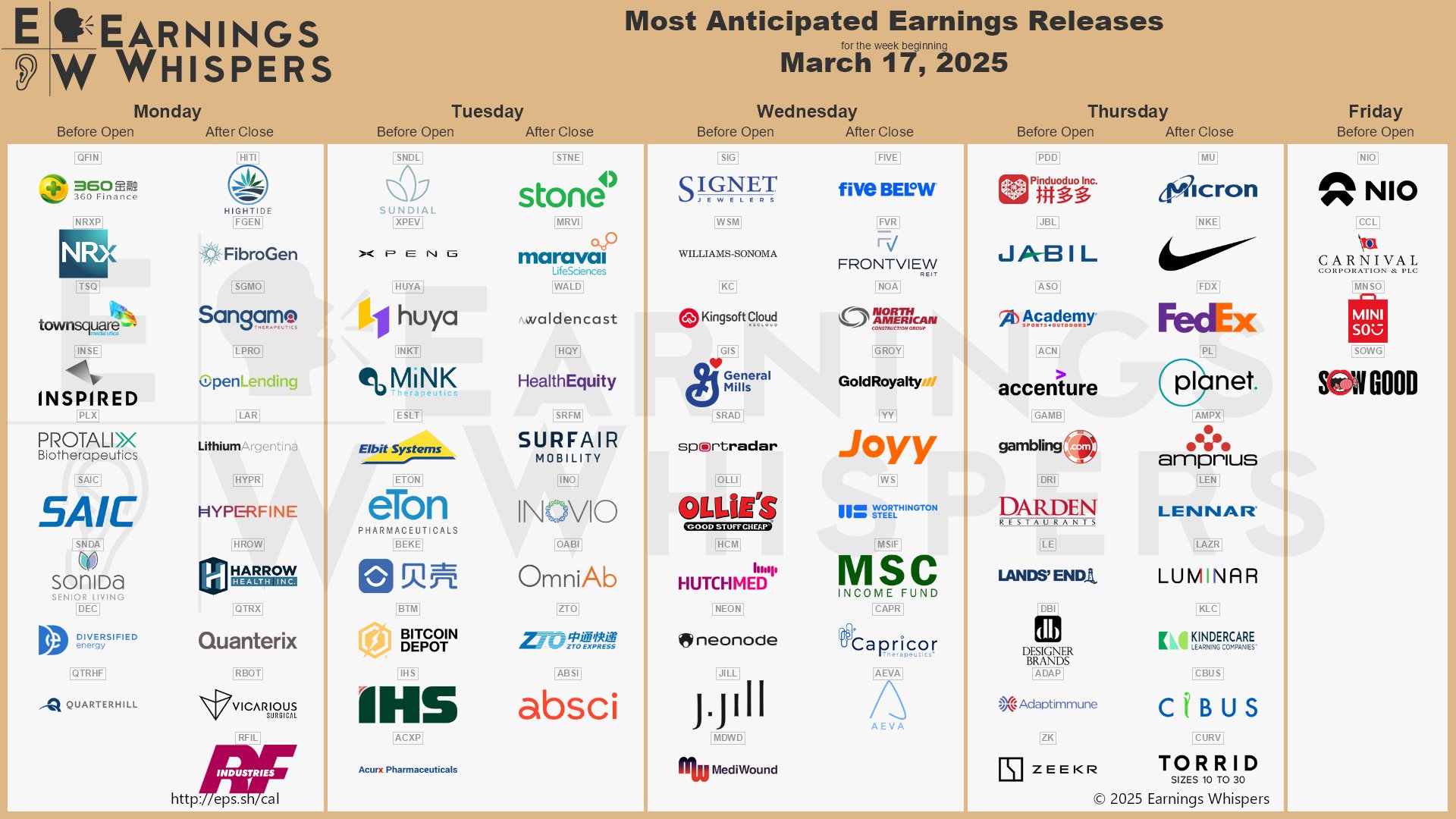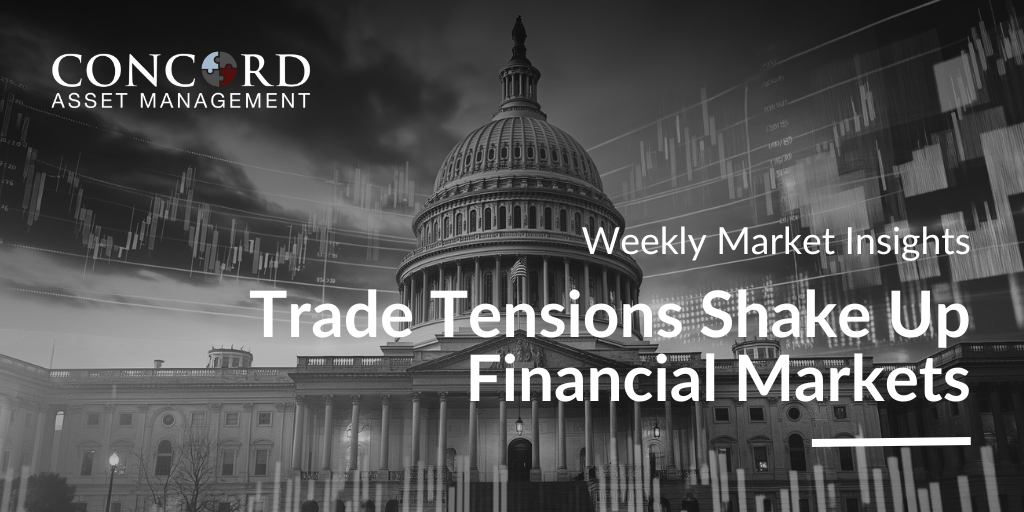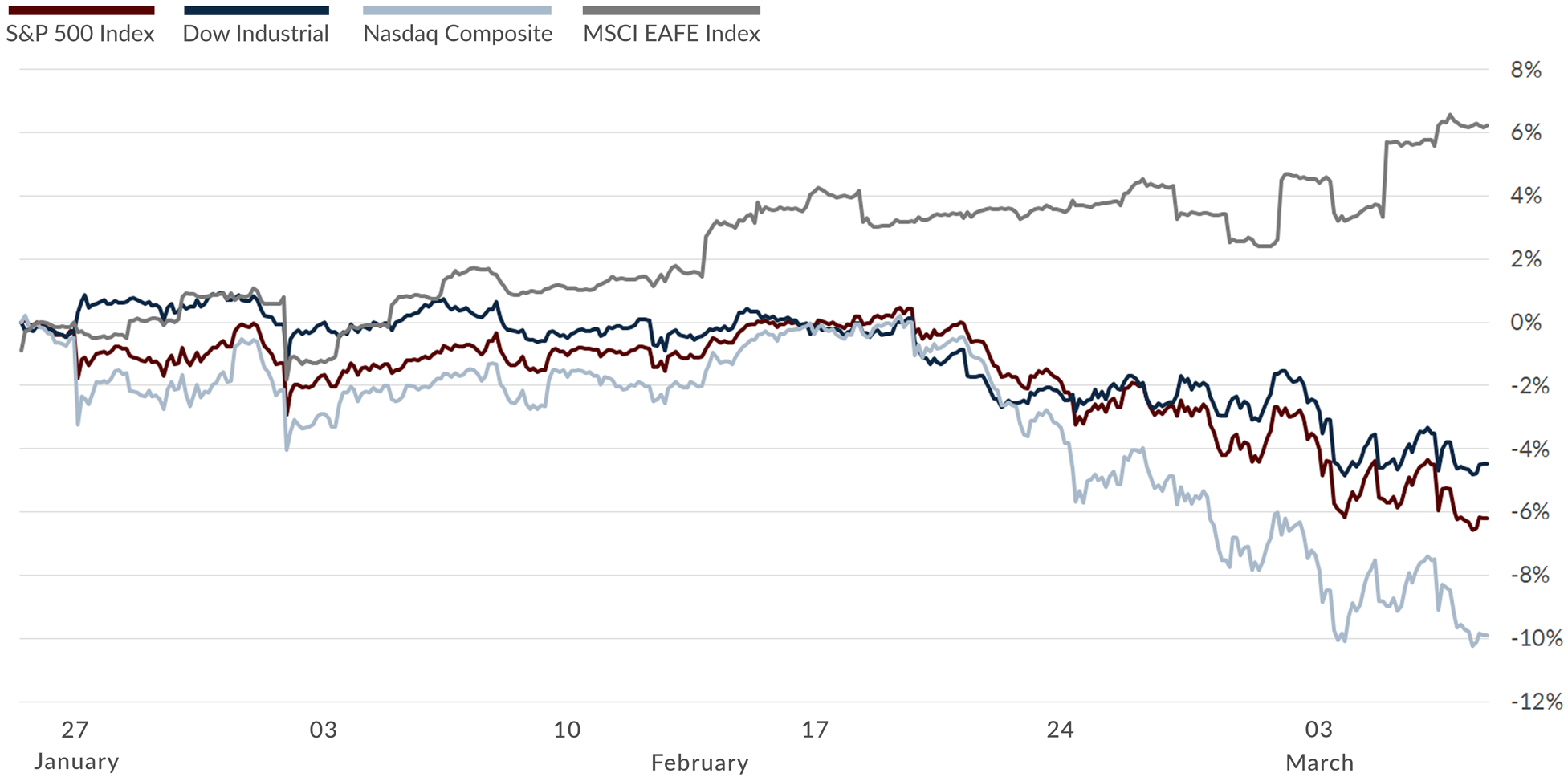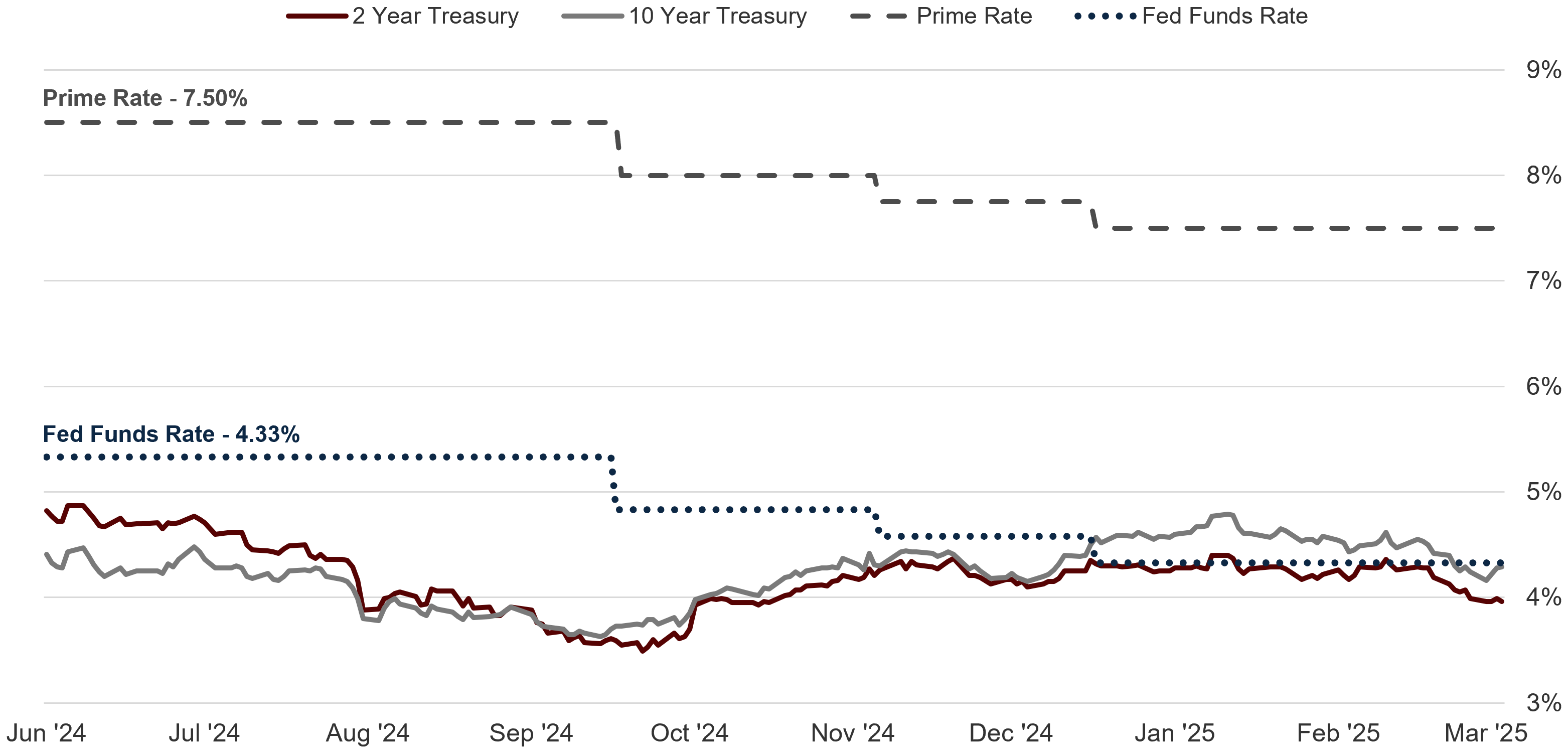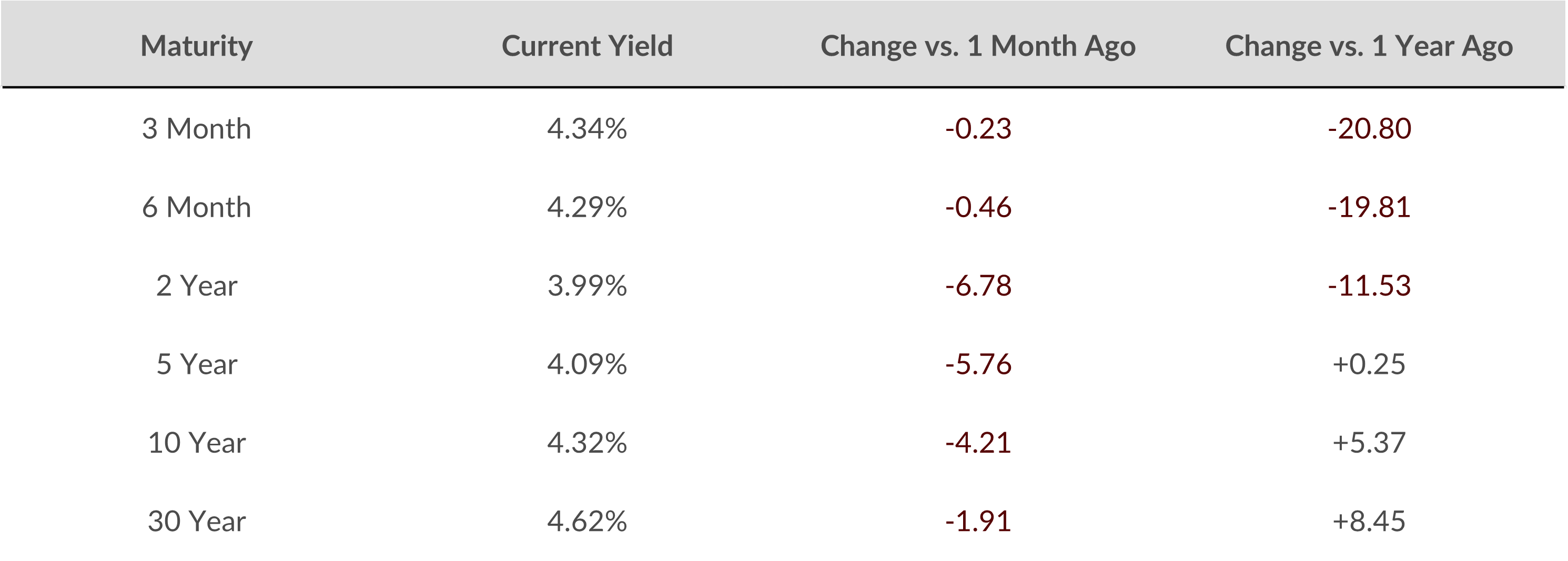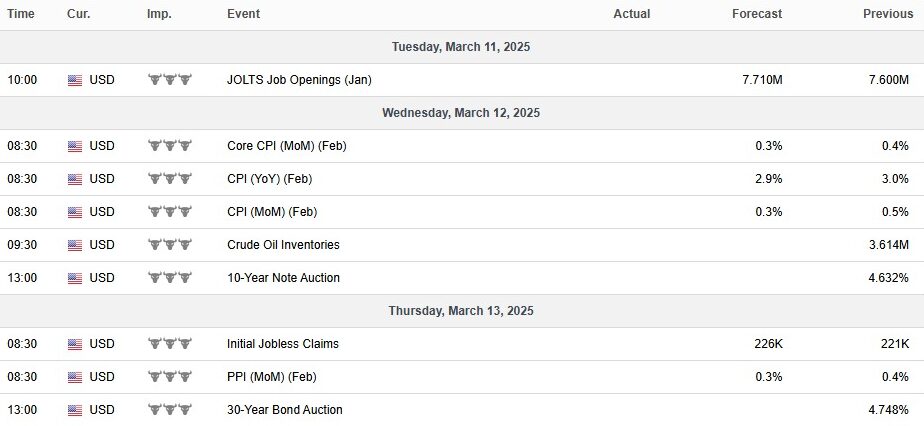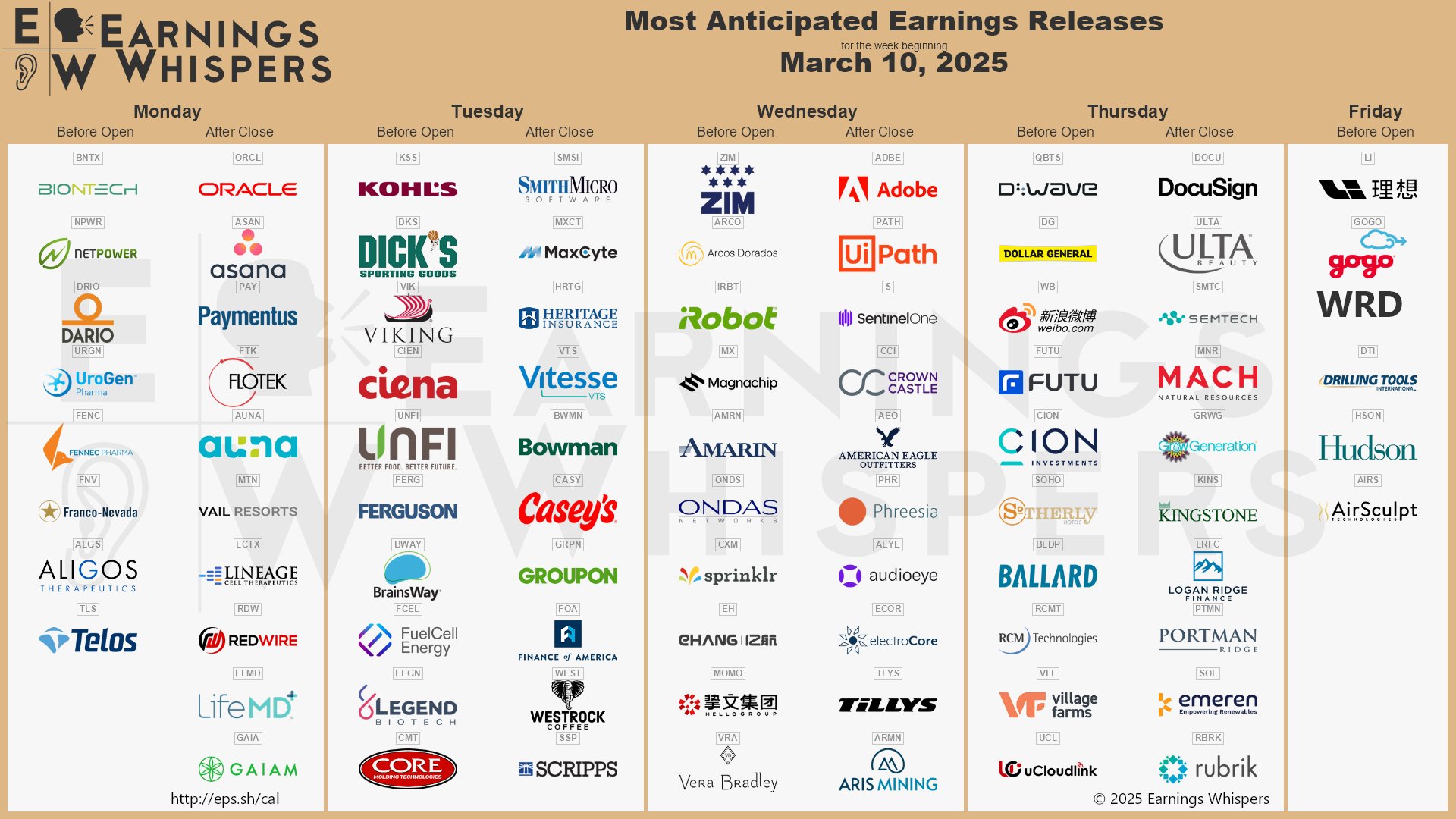Markets Rise to Kick Off May Trading:
Stocks climbed last week, driven by optimism around the White House’s positive trade remarks, strong Q1 corporate earnings, and a promising April jobs report.
The S&P 500 Index gained 2.92%, while the Nasdaq Composite Index rose 3.42 %. The Dow Jones Industrial Average added 3.00%. The MSCI EAFE Index, which tracks developed overseas stock markets, advanced 2.56%.1,2
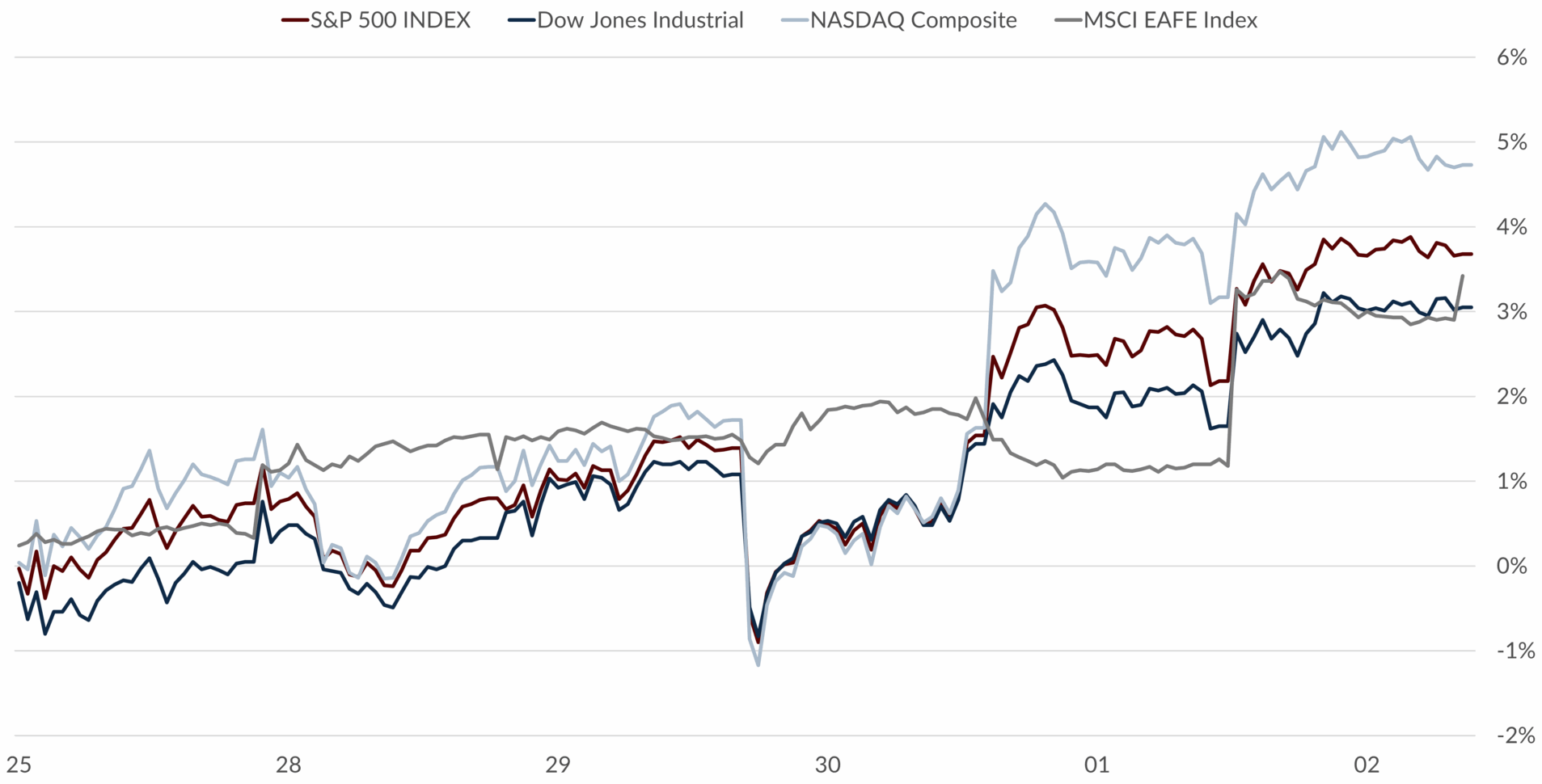
Source: Bloomberg Finance, L.P. (Performance data normalized 4/25/25 = 0)
Longest Winning Streak in 20 Years
During the first two trading days, stocks increased as investors responded favorably to White House comments on tariff deals.3
Then midweek—on the last day of the month—fresh data showed the economy contracted by 0.3 percent in Q1—the first decline in gross domestic product (GDP) in three years. Stocks initially fell on the news but staged a stunning recovery to add a seventh day to the S&P 500’s and Dow Industrial’s winning streaks.4
Q1 corporate reports from a couple of mega-cap tech companies boosted all three major averages over the next session, with Nasdaq leading the rise. By Thursday’s close, Nasdaq had returned to its pre-April 2 levels.5
The rally accelerated on Friday as a better-than-expected April jobs report eased some concerns about the economy’s strength. Signs of a potential thaw in Washington-Beijing trade relations also boosted enthusiasm. The Dow Industrials rose for a ninth straight session, as did the S&P 500—its longest winning streak in 20 years.6
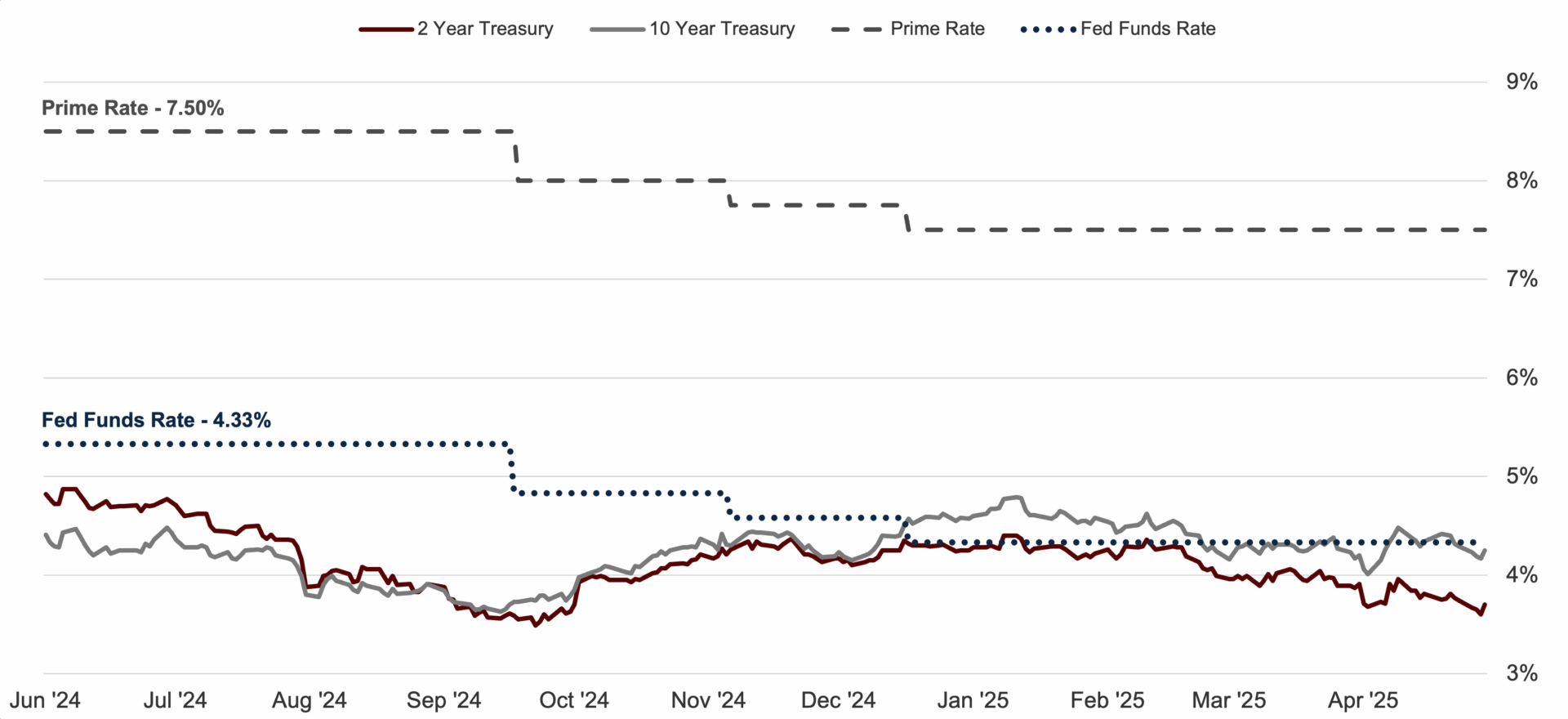
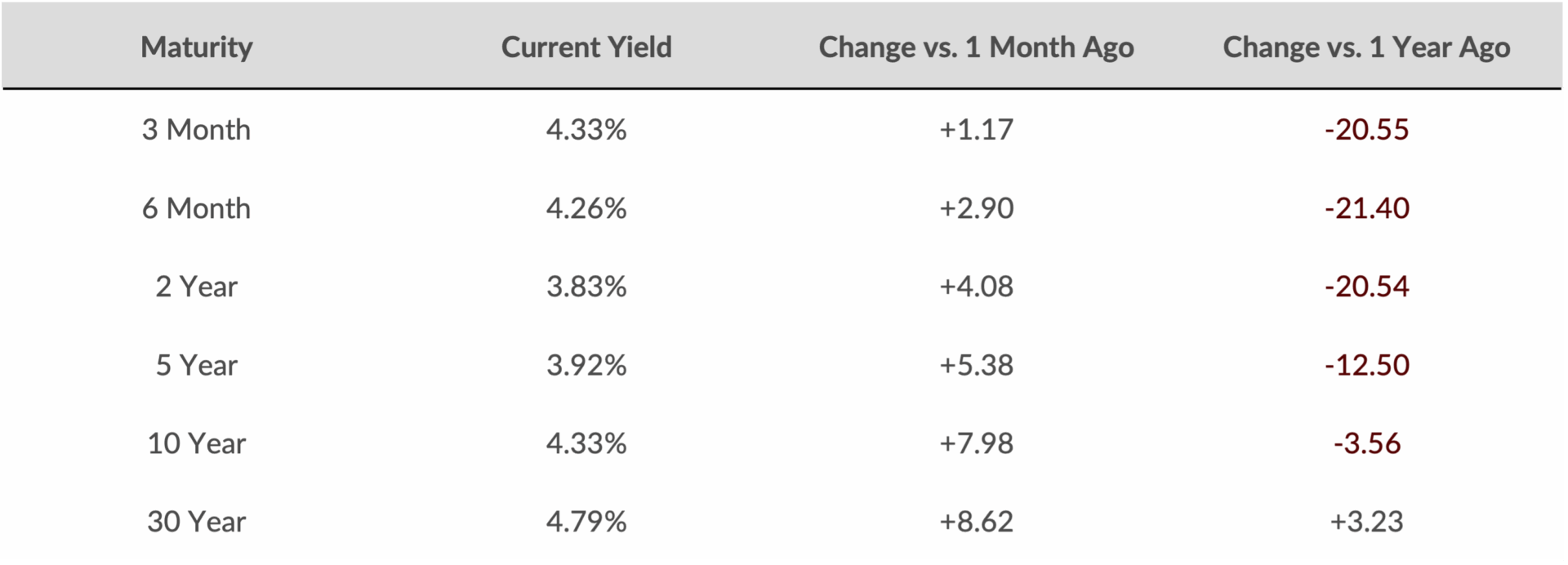
Sources: U.S. Department of the Treasury, Board of Governors of the Federal Reserve System, Charles Schwab
Solid Jobs Report
The April jobs report showed employers added 177,000 jobs last month—34,000 more than economists expected.
The report quieted talk about a recession, which was welcomed news. The April figure also showed the economy was still adding jobs despite a sluggish Q1 GDP report. However, the strong report did prompt some traders to push out expectations for an interest rate adjustment until the Fed’s July meeting.7,8
This Week: Key Economic Data
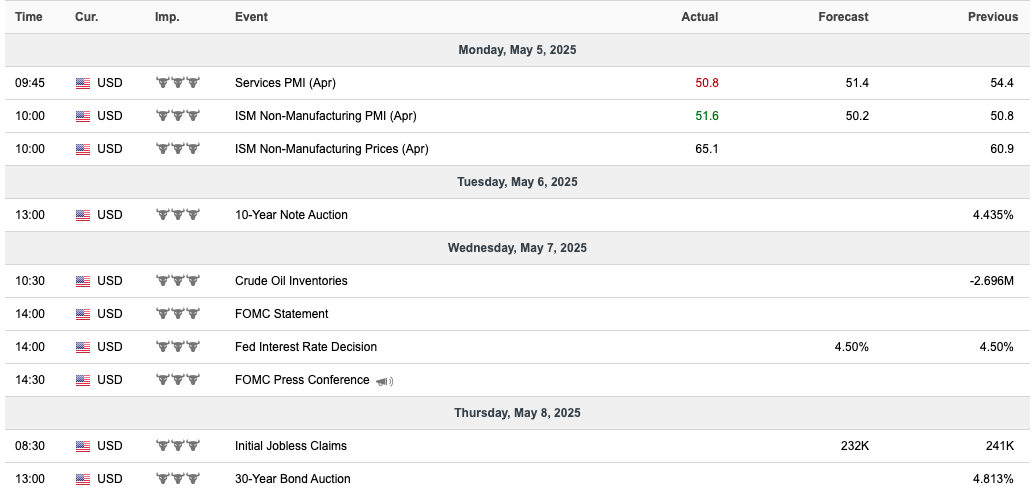
Source: Bloomberg Finance L.P.
This Week: Companies Reporting Earnings
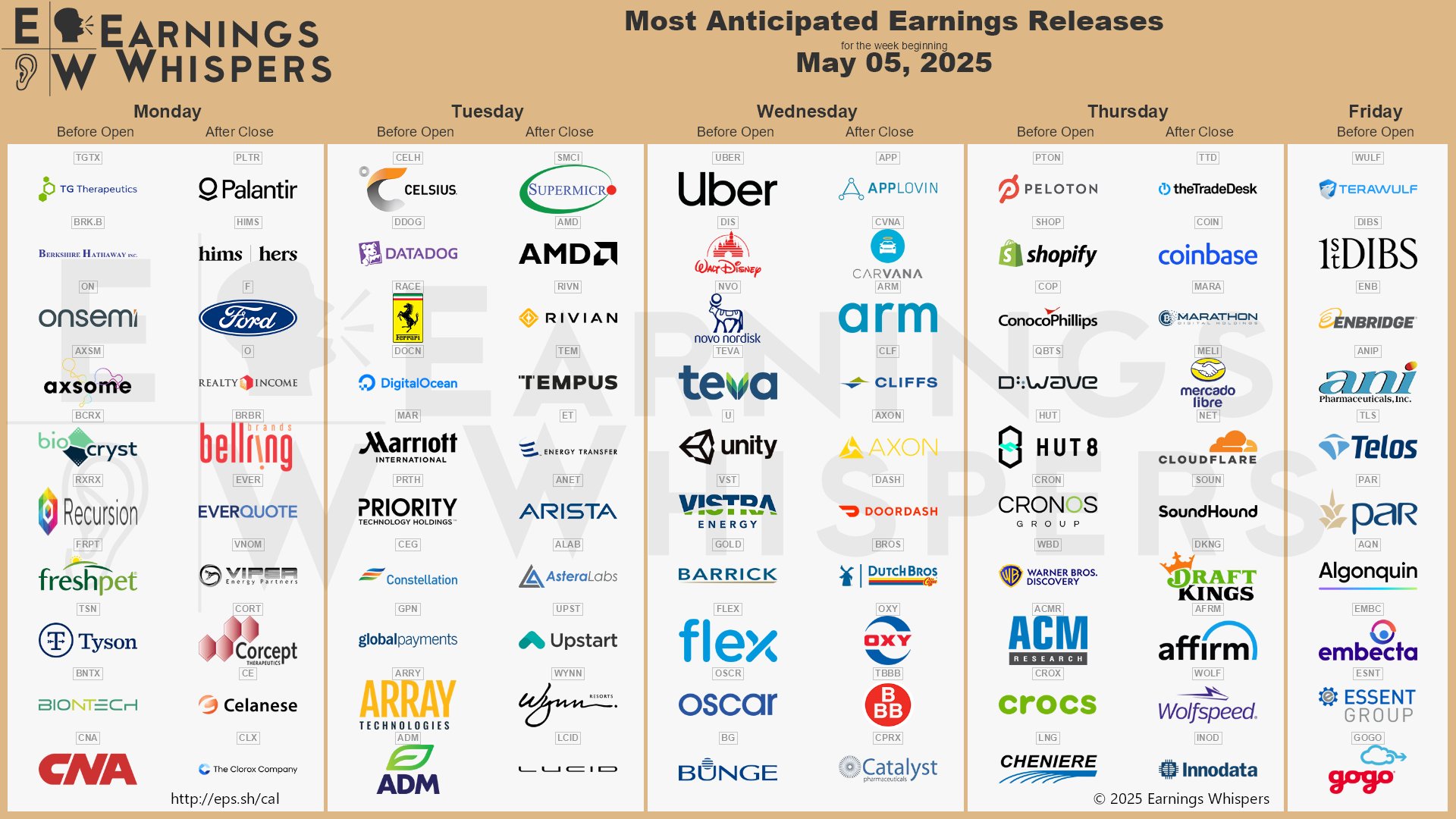
Source: EarningsWhispers
Author

Gary Aiken
Chief Investment Officer
Concord Asset Management
—
Footnotes and Sources
1The Wall Street Journal, May 2, 2025
2Investing.com, May 2, 2025
3CNBC.com, April 29, 2025
4The Wall Street Journal, April 30, 2025
5CNBC.com, May 1, 2025
6CNBC.com, May 2, 2025
7MarketWatch.com, May 2, 2025
8CNBC.com, May 2, 2025
Please remember that past performance may not be indicative of future results. Different types of investments involve varying degrees of risk, and there can be no assurance that the future performance of any specific investment, investment strategy, or product (including the investments and/or investment strategies recommended or undertaken by Concord Asset Management, or any non-investment related content, made reference to directly or indirectly in this article will be profitable, equal any corresponding indicated historical performance level(s), be suitable for your portfolio or individual situation, or prove successful. Due to various factors, including changing market conditions and/or applicable laws, the content may no longer be reflective of current opinions or positions. Moreover, you should not assume that any discussion or information contained in this article serves as the receipt of, or as a substitute for, personalized investment advice from Concord Asset Management. To the extent that a reader has any questions regarding the applicability of any specific issue discussed above to his/her individual situation, he/she is encouraged to consult with the professional advisor of his/her choosing.
The companies mentioned are for informational purposes only. It should not be considered a solicitation for the purchase or sale of any specific securities. Investing involves risks, and investment decisions should be based on your own goals, time horizon, and tolerance for risk. The return and principal value of investments will fluctuate as market conditions change. When sold, investments may be worth more or less than their original cost. The forecasts or forward-looking statements are based on assumptions, may not materialize, and are subject to revision without notice. The market indexes discussed are unmanaged and generally considered representative of their respective markets. Index performance is not indicative of the past performance of a particular investment. Indexes do not incur management fees, costs, and expenses. Individuals cannot directly invest in unmanaged indexes. The Dow Jones Industrial Average is an unmanaged index that is generally considered representative of large-capitalization companies on the U.S. stock market. Nasdaq Composite is an index of the common stocks and similar securities listed on the NASDAQ stock market and is considered a broad indicator of the performance of technology and growth companies. The MSCI EAFE Index was created by Morgan Stanley Capital International (MSCI) and serves as a benchmark of the performance of major international equity markets, as represented by 21 major MSCI indexes from Europe, Australia, and Southeast Asia. The S&P 500 Composite Index is an unmanaged group of securities that are considered to be representative of the stock market in general. U.S. Treasury Notes are guaranteed by the federal government as to the timely payment of principal and interest. However, if you sell a Treasury Note prior to maturity, it may be worth more or less than the original price paid. Fixed income investments are subject to various risks, including changes in interest rates, credit quality, inflation risk, market valuations, prepayments, corporate events, tax ramifications, and other factors. International investments carry additional risks, which include differences in financial reporting standards, currency exchange rates, political risks unique to a specific country, foreign taxes and regulations, and the potential for illiquid markets. These factors may result in greater share price volatility. Please consult your financial professional for additional information.
Concord Asset Management is neither a law firm, nor a certified public accounting firm, and no portion of the content should be construed as legal or accounting advice. A copy of Concord Asset Management’ current written disclosure Brochure discussing our advisory services and fees is available upon request or at https://concordwealthpartners.com/. Please Note: If you are a Concord Asset Management or Concord Wealth Partners client, please remember to contact the firm in writing, if there are any changes in your personal/financial situation or investment objectives for the purpose of reviewing, evaluating, and/or revising our previous recommendations and/or services, or if you would like to impose, add, or to modify any reasonable restrictions to our investment advisory services. Concord Asset Management and Concord Wealth Partners shall continue to rely on the accuracy of information that you have provided. Please Note: If you are a Concord Asset Management or Concord Wealth Partners client, please advise us if you have not been receiving account statements (at least quarterly) from the account custodian.



